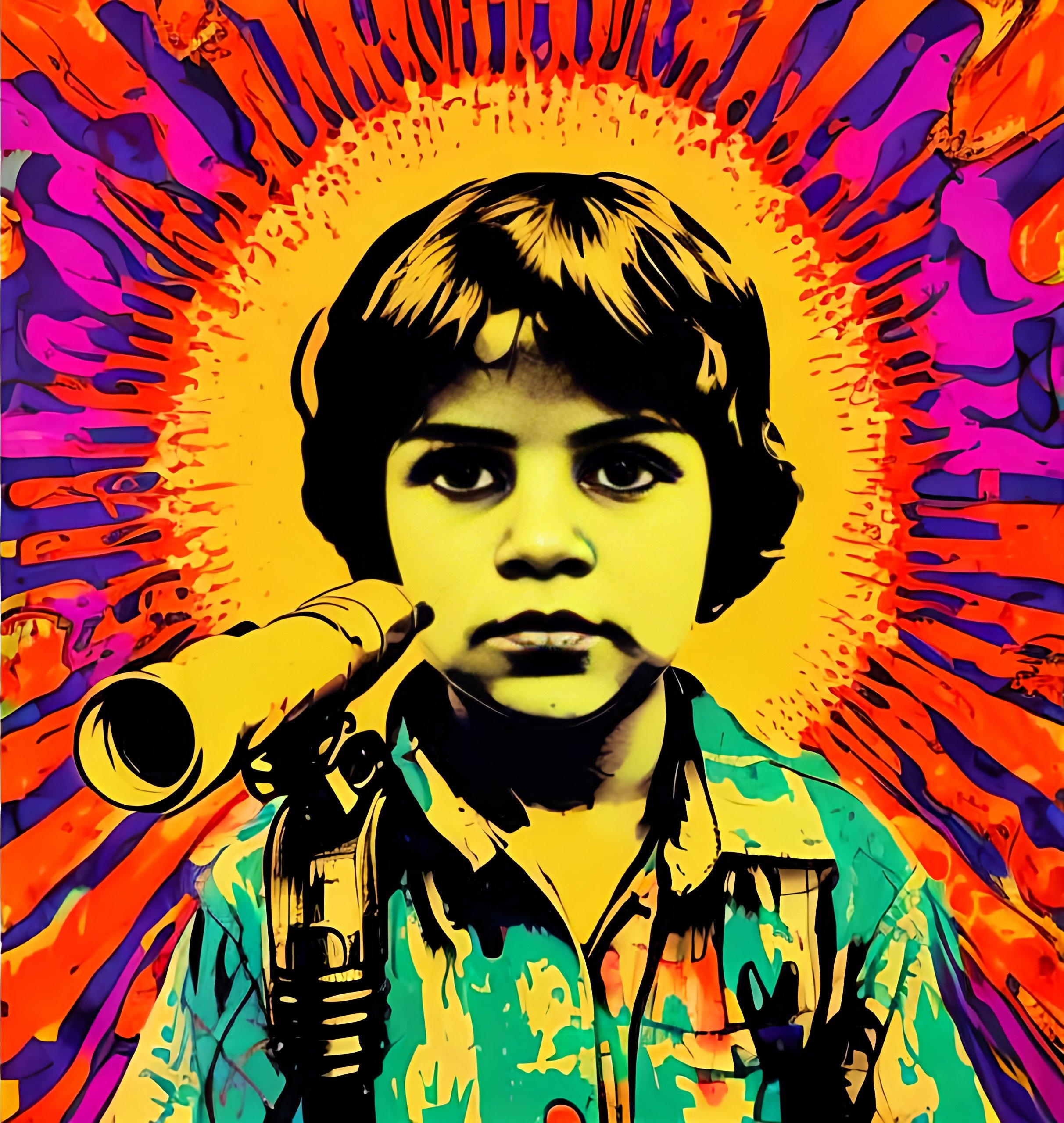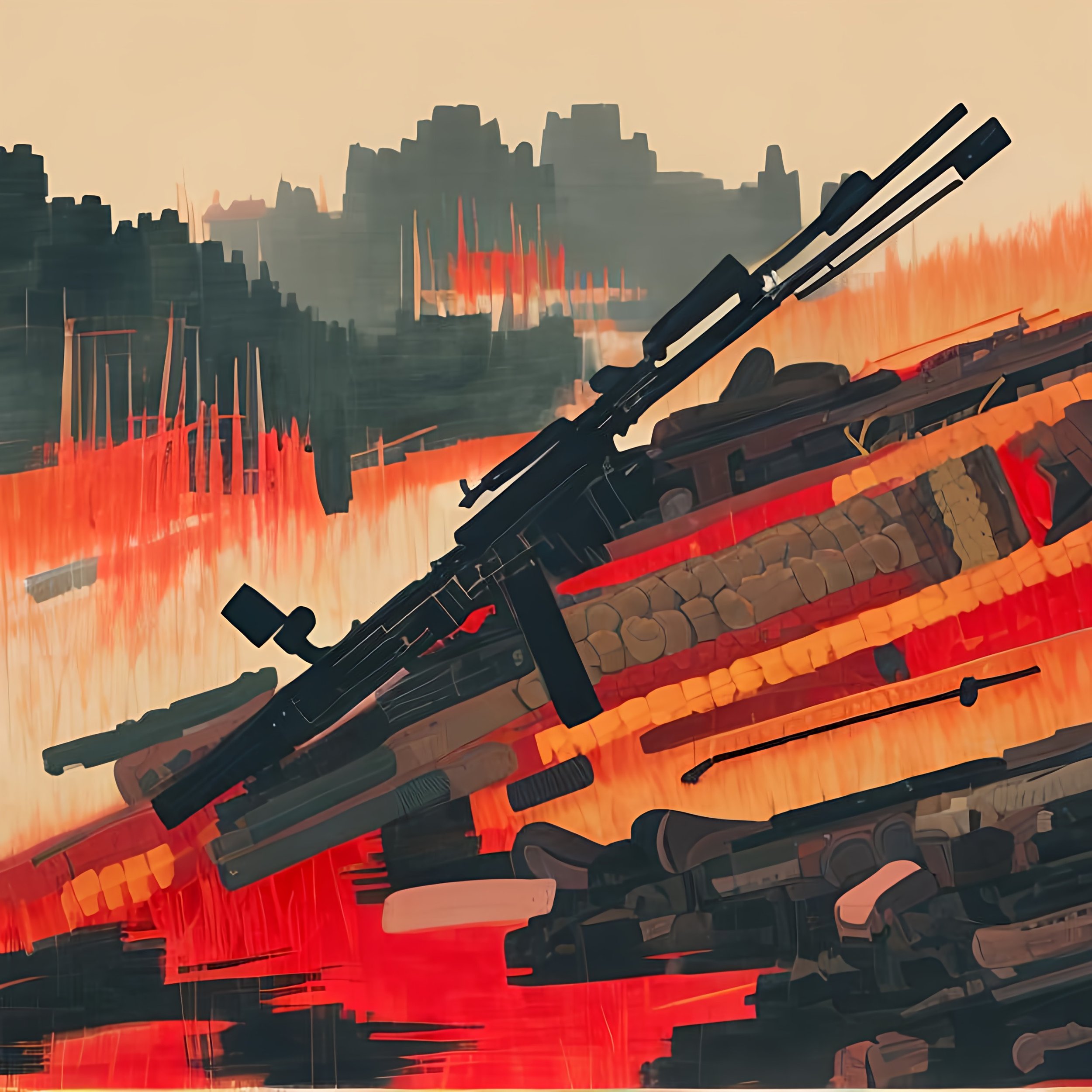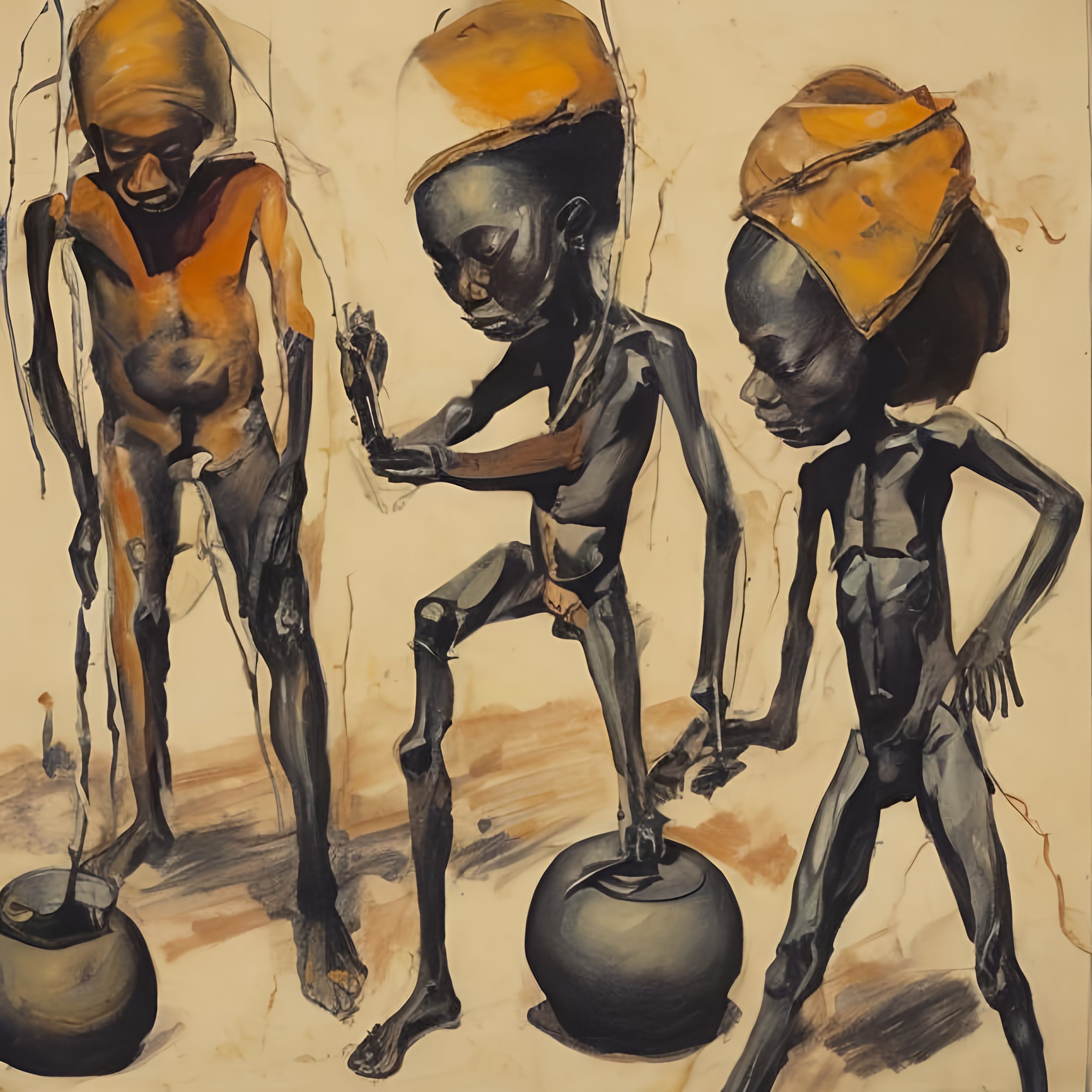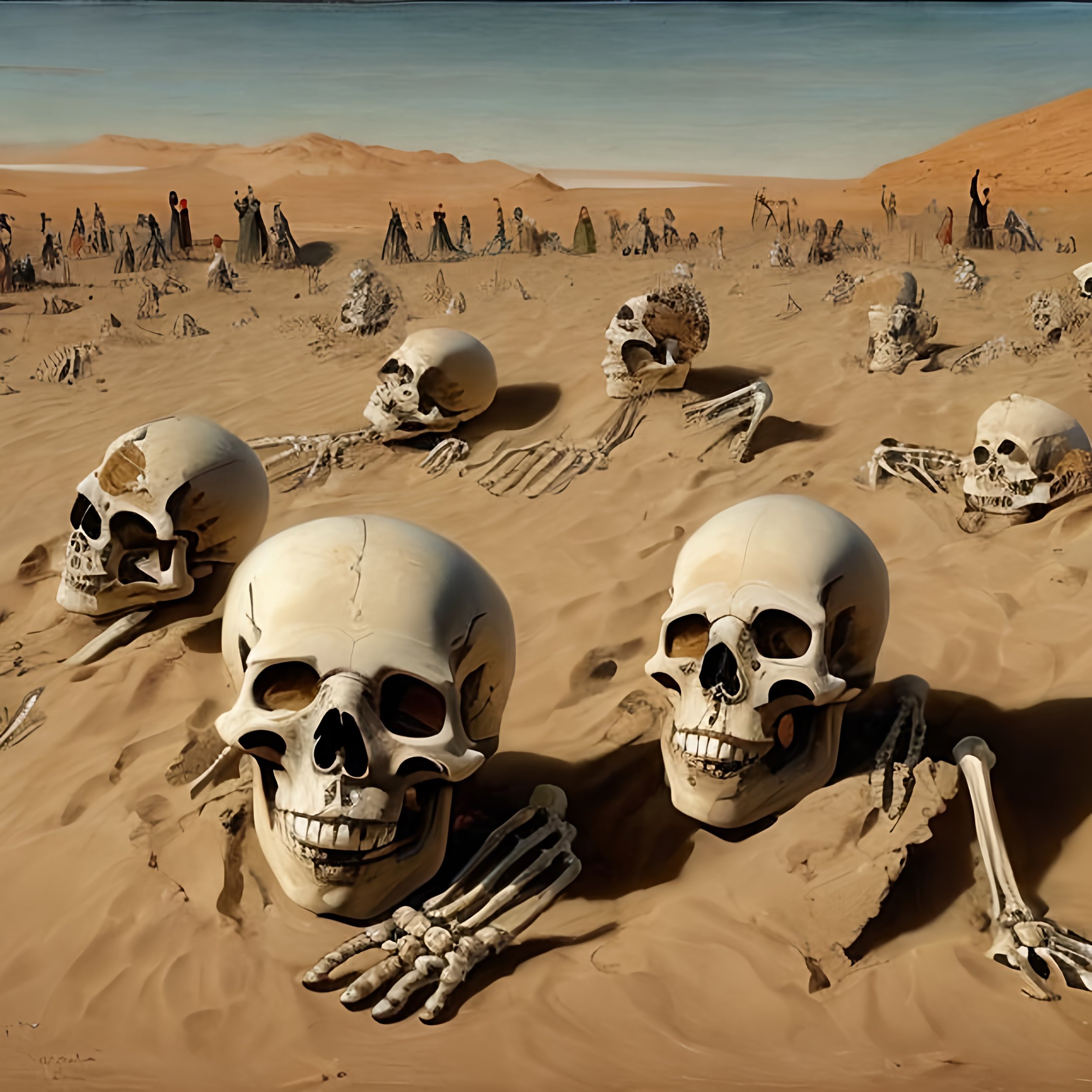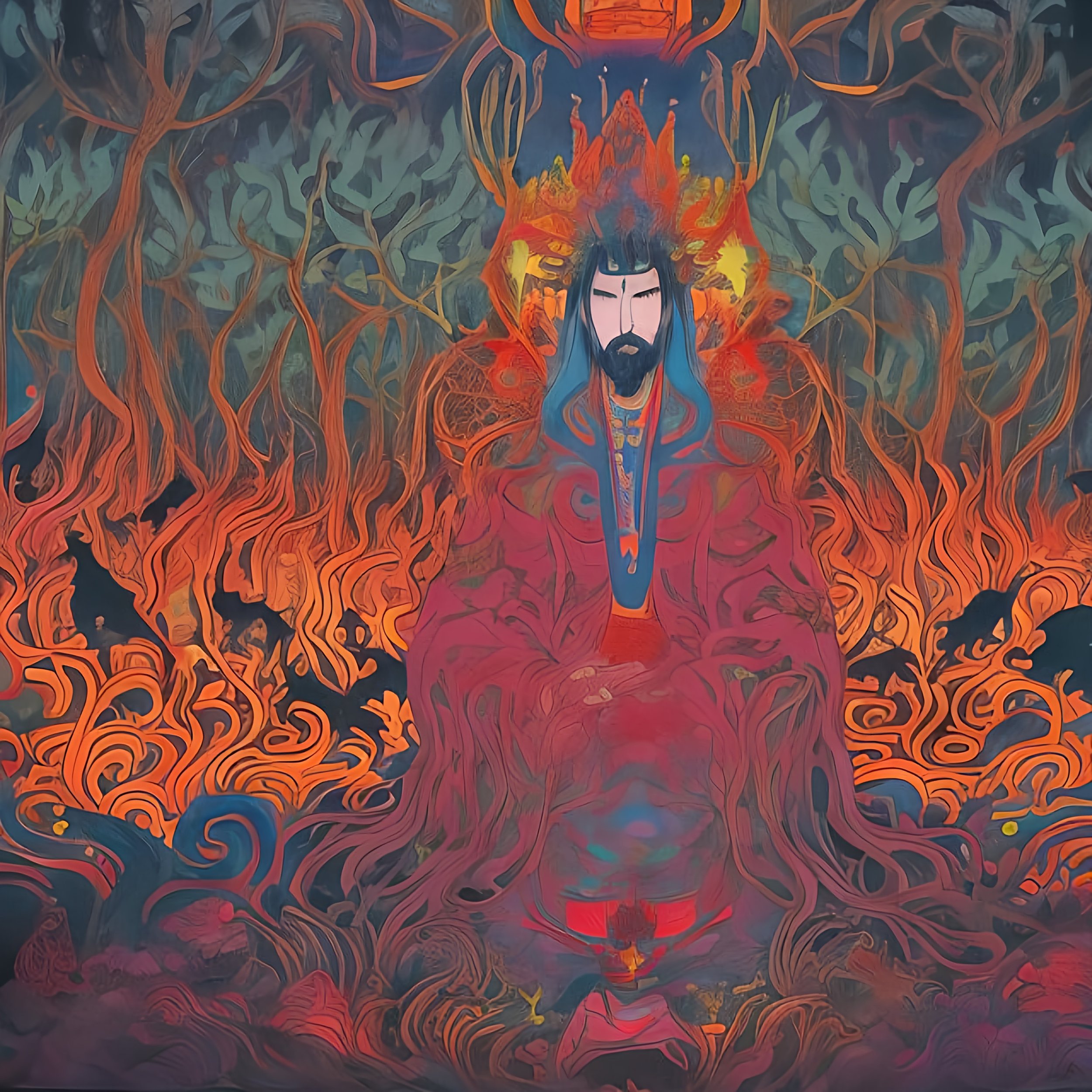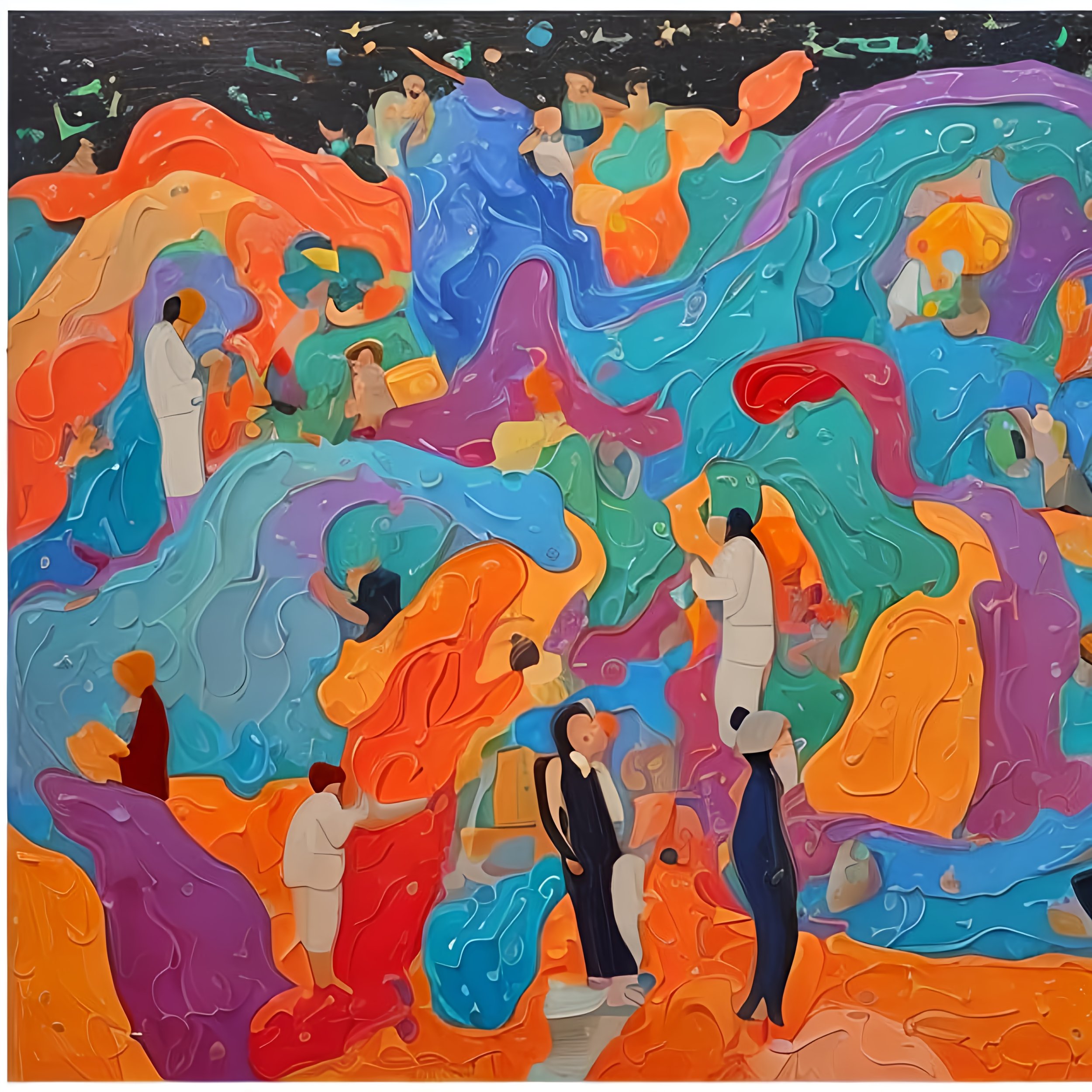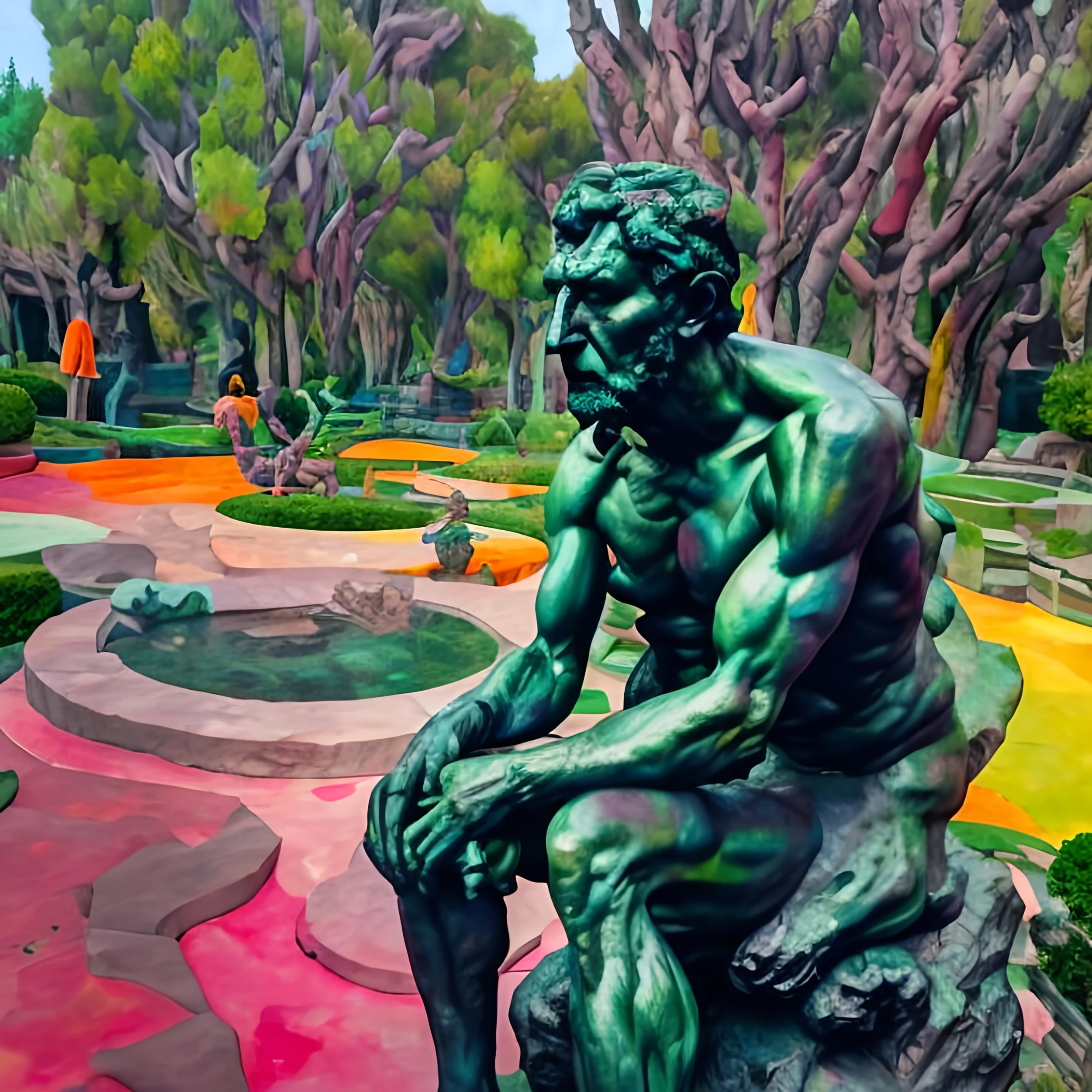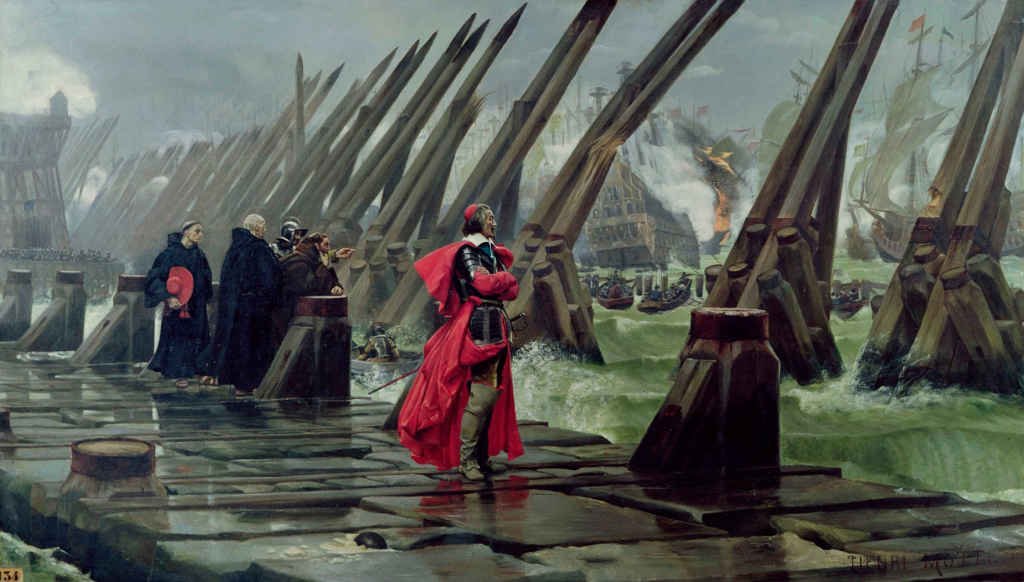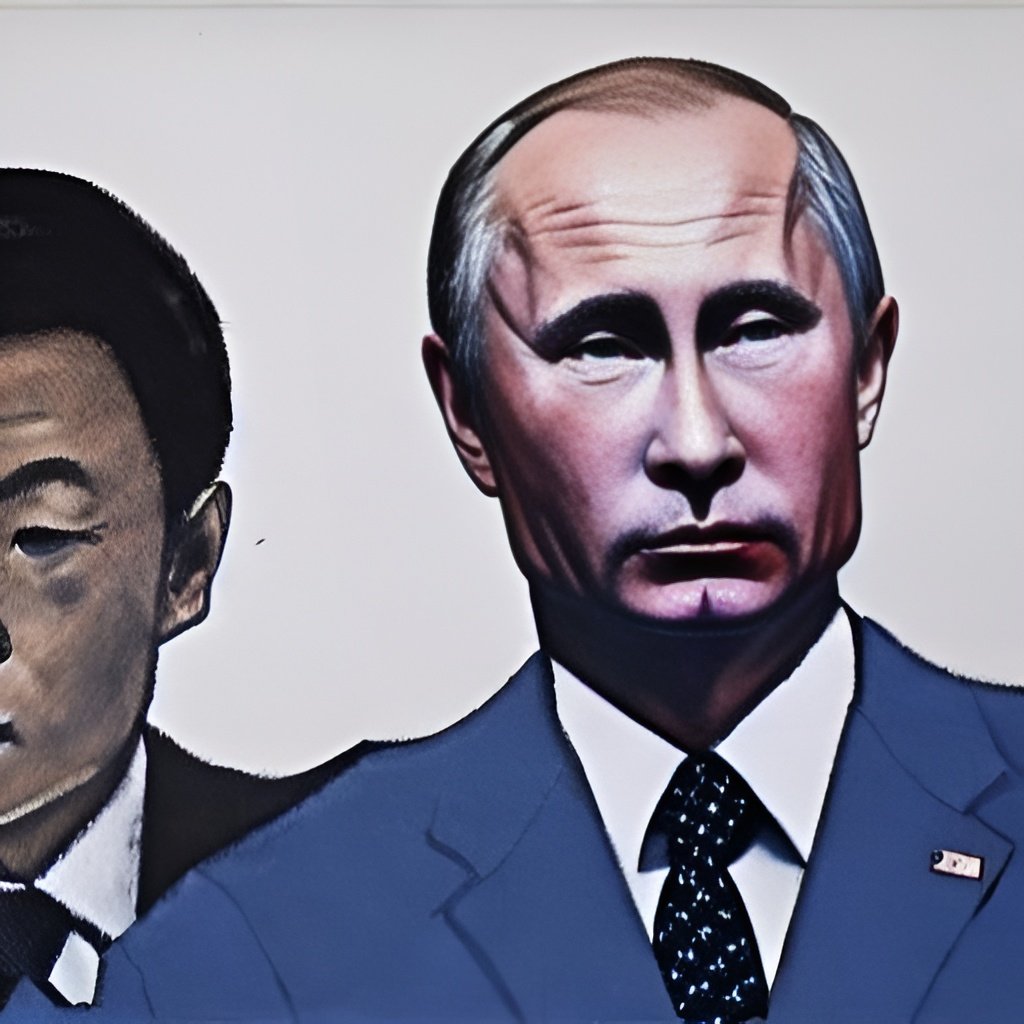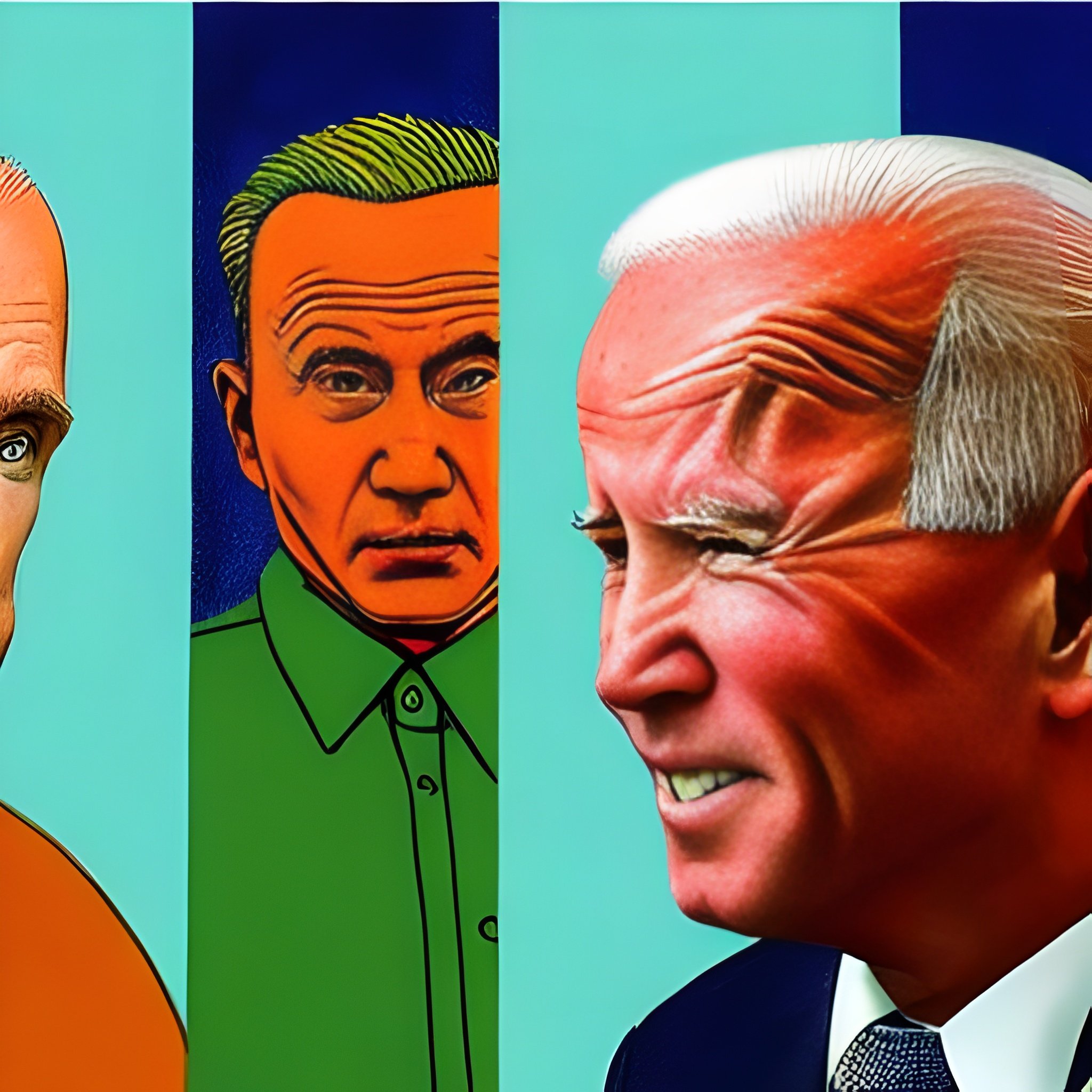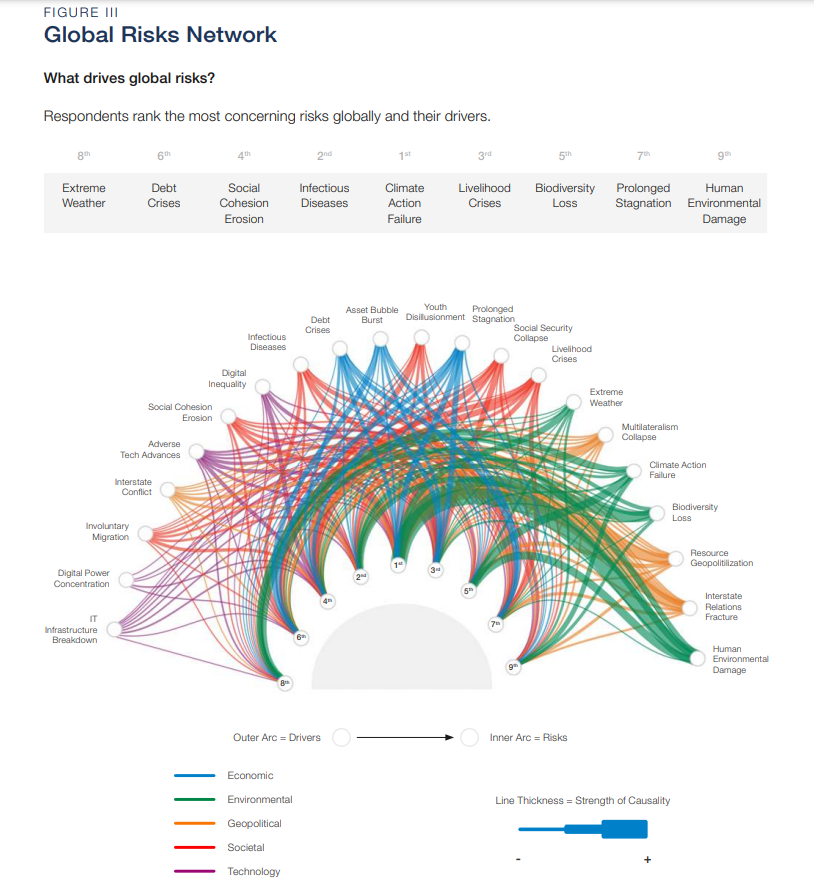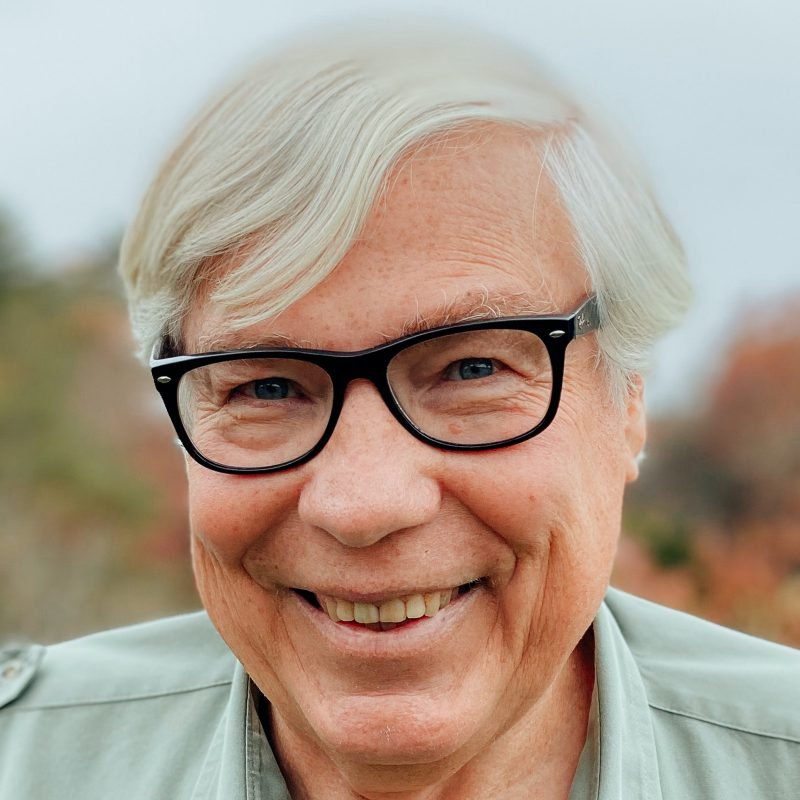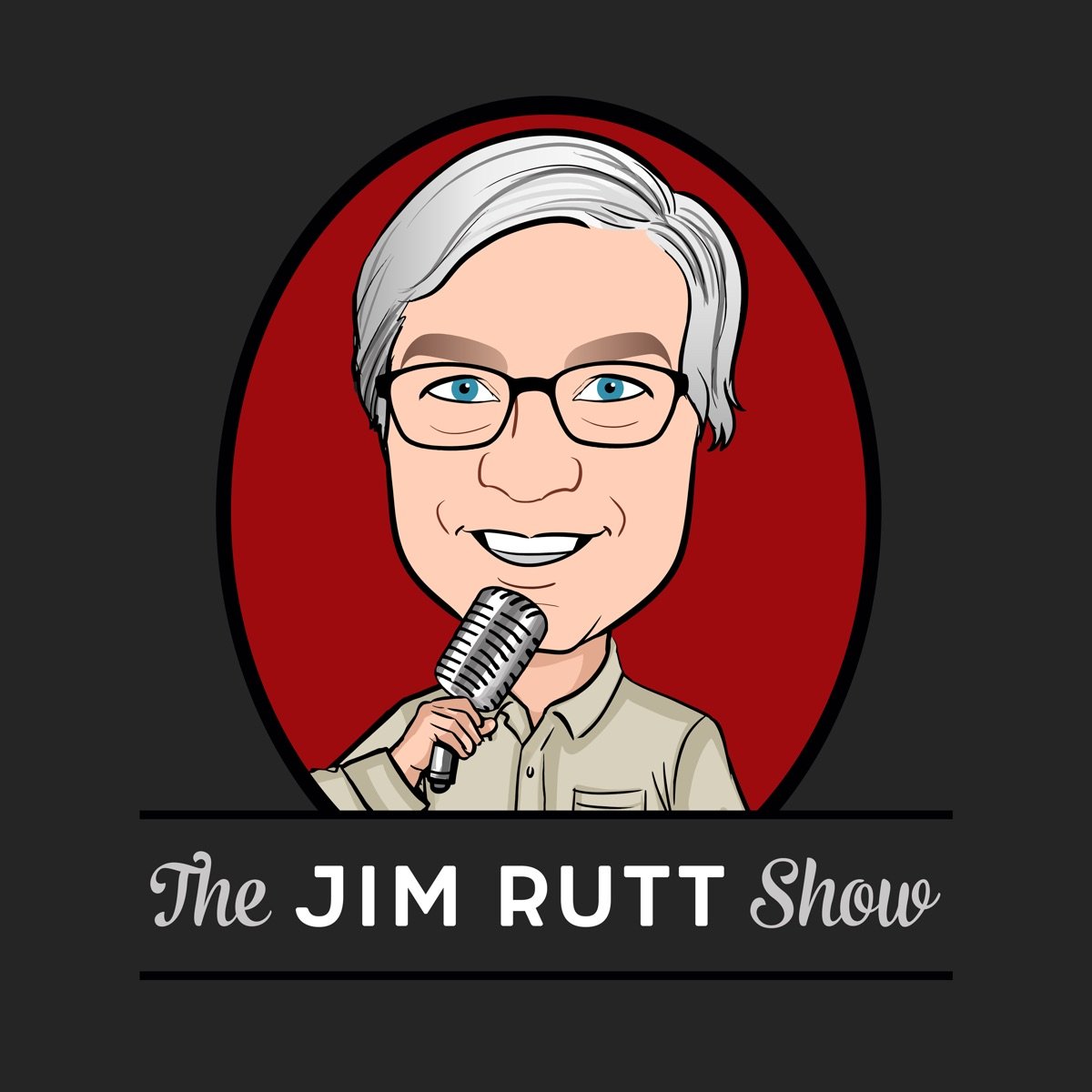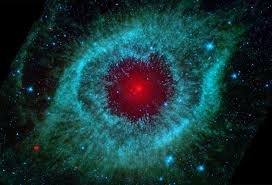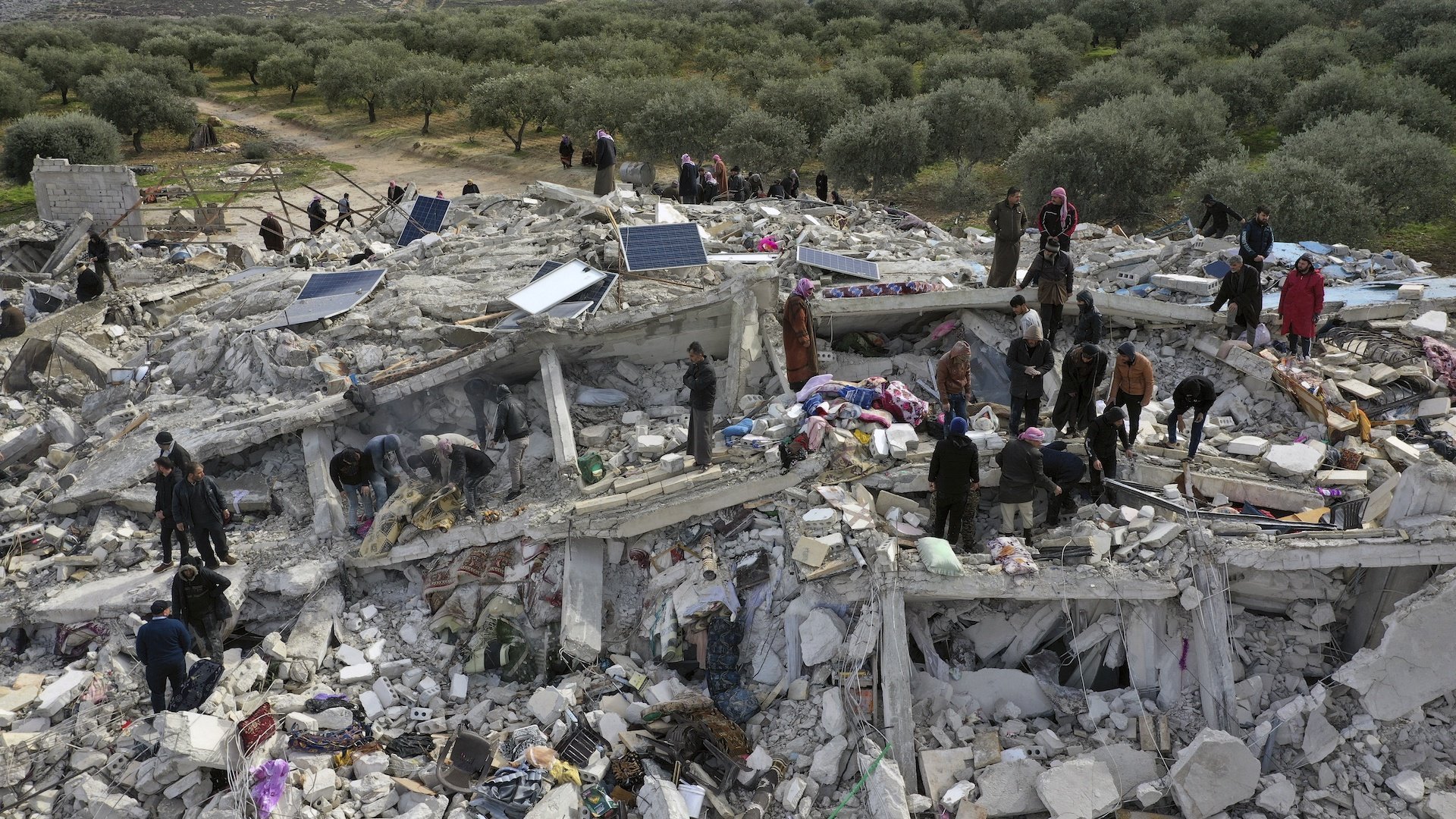
Become Aware Of It, Pay Attention To It. Read About It, Learn About It, Write About It, Talk About It. Teach It.
Reflections upon anything under the sun and beyond. It may not be easy to be a Global Citizen, but it's not hard to engage the Globe.
What Will Allow Us To Free Our Imaginations From The Lies?
Over the past twenty years, I've noticed that we are bred to be consumers. What we learn to think, believe, and do is about performing our part as consumers. Profit flows from our addiction to nice stuff. Money, power, and control over resources go to the few who are aggressive and competitive enough to play The Great Game and channel profit to themselves. In our current world, nothing else is more important than these functions.
It’s a global aspiration—one we have been trained to desire
I follow experts in various domains, well-meaning, earnest people who do their best to do good work and communicate their findings to ordinary people when they think we need to know. When they stick to their area of expertise, they are tremendously valuable. The main problem with sincere, caring experts is sometimes they need to remember that they are not experts in everything. Most importantly, kind and diligent experts must maintain the profit-first narrative the minute they stray from what they know well. I could spend all day making a list of examples, but I don't have to; you know this if you are curious, pay attention to current events, have developed a good bull shit detector kit, read books, and have a modicum of critical thinking skills.
"Who's the best critical thinker you ever saw?"
Humble, all too humble. No, great confidence is attractive.
I was rattling on last month about Samantha Hill's "The Problem From Hell" America in the Age of Genocide. It's an informative book—I highly recommend it. I think she is an impressive person. When she wrote the book, she was the Professor of Human Rights Practice at Harvard's John F. Kennedy School of Government.
Samantha Jane Power (born September 21, 1970) is an American journalist, diplomat, and government official currently serving as the Administrator of the United States Agency for International Development. Previously, she served as the 28th United States Ambassador to the United Nations from 2013 to 2017. She is a member of the Democratic Party.
Samantha Jane Power is the epitome of the mainstream of The Great Game. I am sure she's a good person. She continues to have a stellar career. Once admitted to The Great Game on that level, the most important thing to do is to keep playing, stay relevant, and never get kicked out of the club. You have a responsibility to all the Players who share The Great Game with you.
People who are part of the structure and system of the game of profit and control over resources must stay on script. Protecting the game is the prime directive. Maintain the proper narrative, keep your position, and advance. This is why a few days after October 7, Ms. Power trotted out the CNN script about beheaded babies and so on. Careerists like Powers won't wait for evidence, eyewitness testimony, and investigations before they go to bat for The Great Game. They will save that stoic work for their next book.
Like I said, I could present examples like this all day. Instead, I'll do what I always do and ask you to read a book. After reading it, you will be better equipped to deal with the torrent of lies coming at you all day from multiple quarters and domains you may not be familiar with, much less expert in.
So here's what I want to impress upon you: if you were born in a wealthy nation, a so-called "first world" nation, you started learning to be a good consumer in your mother's womb. Depending on how privileged and talented you are, you began training to be a diligent consumer or a Player from preschool. If you had great talent and people who could and would support you with their attention, mentorship, money, and resources, you'd go to university and train to be a clerk for the Players. If you performed your job well, you would rise through the ranks, take advantage of opportunities to make more money and consume more and better things. You'd gain status, attention, fame, and more privilege. You'd have a family of your own, only now you are wealthier than your parents and your grandparents and able to pass wealth on to your children who are luckier than you were and can forgo being simply a modest consumer and be trained at an Ivy League university to be a Players in The Great Game. Now, you are a guardian of the narrative from which all the lies flow, and you are powerful.
The Great Game is eternal. Even when you die, whether you have seen yourself as the center of the Universe or have been a true believer in something greater than yourself, after a profound burial ritual attended by crowds of admirers, you will be further compensated through your legacy and, for believers, great rewards in heaven.
I'm not saying all Players are bad people; many may not know they are part of 'this thing of ours.' Excuse me, they are only following their programming, sorry, their rarified education.
The Great Game has evolved over approximately eight thousand years of civilization. Never have better tools been available to Players to help them maintain profits, control over resources, and power.
Plebs and proles (the faithful) owe all of their access to God, to lovely things, and stimulating addictions to the Players and the Super Consumers who drive The Great Game. We all have our part to play.
All of this is to say that financialized, neoliberal global capitalism and its derivatives are going to destroy The Great Game and civilization with it, and there is nothing we can do about it because it's the only thing we know. Even the many earnest experts, the brilliant minds I follow, hardly notice The Great Game because we are all functionaries in The Great Game. We are addicted to what we think, believe, and do and cannot discover a perspective where we can see beyond our limited role.
Everything in our world is commodified and traded on the markets of roles, stereotypes, and big lies.
You will hear clever people say clever things before they reflexively trot out the big lies that make up the grand narrative of The Great Game.
The only way to grow out of this predicament would be to be born and grow up in a completely different world. Circumstances will dictate when this becomes possible. The Great Reset is nothing more than the collapse of civilization and the possibility of a new way of living on this Great Earth, the giver of life, where consciousness arose, and dozens of other marvelous things that will always remain a mystery.
At the risk of sounding gnostic, God knows this: look into your heart, read that book, walk in the woods, cradle your pet, kiss your partner, compliment your child, be human for a quiet moment, and you will find shelter from the lies. Clear-headed, your imagination will take flight, and you'll have a glimpse of that new world I'm dreaming about.
Do We Still Have A Futurism?
We seem hell-bent on destroying civilization in a firehose of lies. I used to be fascinated by all the possibilities the future would bring; now, it breaks my heart to live in a world where too many young people have the terrible intuition that the future may be worse than the past.
This is a post from when the ‘World Wide Web’ was in its heyday, when a free-spirited virtual frontier brought hidden ideas from active minds out in the open where they could be contemplated, shared, and interacted with without fear of cancellation, doxxing, woke activists, or mob tweeting maniacs. A more intimate period before the world was on Facebook, outed, shamed, confused and outraged.
Futurism
05 May 1997 17:41
No, no, not mumbo-jumbo like Toffler or Spengler; I mean the modernist artistic movement founded in 1909 by F. T. Marinetti in friends; the first artists to really, consciously and with immense self-promotion embrace technology and constant change and shock and all that good stuff. They were the first cyberpunks, the first Discordians, and (perhaps not coincidentally) some of the first Fascists. The original (pre-WWI) Futurists were also good artists. One of my works-in-glacial-progress argues that ``we are all Futurists now'' --- all of us on the Net, anyhow.
Recommended:
Giacomo Balla was a good painter, but his pupils, Federigo Severini and (especially) Umberto Boccioni were even better. H. N. Abrams issued the catalog of a Boccioni retrospective a few years ago, and if anyone is looking to drop about $150 on a gift for me, that would do nicely.
Reyner Banham has some good chapters on both the general character of the movement, and its influence on modern architecture, in Theory and Design in the First Machine Age
Igor Golomshtok, Totalitarian Art
The Futurist Programmers, especially the Manifesto of the Futurist Programmers.
James Joll, Three Intellectuals in Politics [Marinetti is the last of the three, preceeed by Leon Blum and Walther Rathenau, who were respectively the Premier of France and in charge of the German economy during the Great War.]
F. T. Marinetti
The Neo-Futurists are a Chicago group which put on a damn fine show, Too Much Light Makes the Baby Go Blind, which tends to blow the minds of those who aren't prepared for, say, thirty plays in sixty minutes; I wasn't.
J. C. Taylor, Futurism is the very good catalog of a show at the New York Museum of Modern Art in 1961.
Kim Scarborough's Futurism Index has a wider selection of manifestoes, and links to such other Futurist pages as can be found.
To read:
Günter Berghaus, Futurism and Politics: Between Anarchist Rebellion and Fascist Reaction, 1909--1944 [Looks like pure apologetics, along the lines of ``the collaborated, but they had private objections.'' As Kolakowski says somewhere about the analogous position under Stalin, the rulers ask for no more.]
Cinzia Sartini Blum, The Other Modernism: F. T. Marinetti's Futurist Fiction of Power
Richard Humphreys, Futurism [Blurb]
Marinetti, The Untameables
Marianne Martin, Futurist Art and Theory
Perloff, The Futurist Movement
Russolo, Art of Noises
Filippo Tommaso Emilio Marinetti was an artist and a fascist. I am not a fascist, but I wonder what the new wave of fascism will look like once it fully expresses itself when the metacrisis is in full panic mode. One must never forget the past, shirk participating in the present, or neglect to imagine the future.
The Futurist Manifesto
F. T. Marinetti, 1909
We have been up all night, my friends and I, beneath mosque lamps whose brass cupolas are bright as our souls, because like them they were illuminated by the internal glow of electric hearts. And trampling underfoot our native sloth on opulent Persian carpets, we have been discussing right up to the limits of logic and scrawling the paper with demented writing.
Our hearts were filled with an immense pride at feeling ourselves standing quite alone, like lighthouses or like the sentinels in an outpost, facing the army of enemy stars encamped in their celestial bivouacs. Alone with the engineers in the infernal stokeholes of great ships, alone with the black spirits which rage in the belly of rogue locomotives, alone with the drunkards beating their wings against the walls.
Then we were suddenly distracted by the rumbling of huge double decker trams that went leaping by, streaked with light like the villages celebrating their festivals, which the Po in flood suddenly knocks down and uproots, and, in the rapids and eddies of a deluge, drags down to the sea.
Then the silence increased. As we listened to the last faint prayer of the old canal and the crumbling of the bones of the moribund palaces with their green growth of beard, suddenly the hungry automobiles roared beneath our windows.
`Come, my friends!’ I said. `Let us go! At last Mythology and the mystic cult of the ideal have been left behind. We are going to be present at the birth of the centaur and we shall soon see the first angels fly! We must break down the gates of life to test the bolts and the padlocks! Let us go! Here is they very first sunrise on earth! Nothing equals the splendor of its red sword which strikes for the first time in our millennial darkness.’
We went up to the three snorting machines to caress their breasts. I lay along mine like a corpse on its bier, but I suddenly revived again beneath the steering wheel – a guillotine knife – which threatened my stomach. A great sweep of madness brought us sharply back to ourselves and drove us through the streets, steep and deep, like dried up torrents. Here and there unhappy lamps in the windows taught us to despise our mathematical eyes. `Smell,’ I exclaimed, `smell is good enough for wild beasts!’
And we hunted, like young lions, death with its black fur dappled with pale crosses, who ran before us in the vast violet sky, palpable and living.
And yet we had no ideal Mistress stretching her form up to the clouds, nor yet a cruel Queen to whom to offer our corpses twisted into the shape of Byzantine rings! No reason to die unless it is the desire to be rid of the too great weight of our courage!
We drove on, crushing beneath our burning wheels, like shirt-collars under the iron, the watch dogs on the steps of the houses.
Death, tamed, went in front of me at each corner offering me his hand nicely, and sometimes lay on the ground with a noise of creaking jaws giving me velvet glances from the bottom of puddles.
`Let us leave good sense behind like a hideous husk and let us hurl ourselves, like fruit spiced with pride, into the immense mouth and breast of the world! Let us feed the unknown, not from despair, but simply to enrich the unfathomable reservoirs of the Absurd!’
As soon as I had said these words, I turned sharply back on my tracks with the mad intoxication of puppies biting their tails, and suddenly there were two cyclists disapproving of me and tottering in front of me like two persuasive but contradictory reasons. Their stupid swaying got in my way. What a bore! Pouah! I stopped short, and in disgust hurled myself – vlan! – head over heels in a ditch.
Oh, maternal ditch, half full of muddy water! A factory gutter! I savored a mouthful of strengthening muck which recalled the black teat of my Sudanese nurse!
As I raised my body, mud-spattered and smelly, I felt the red hot poker of joy deliciously pierce my heart. A crowd of fishermen and gouty naturalists crowded terrified around this marvel. With patient and tentative care they raised high enormous grappling irons to fish up my car, like a vast shark that had run aground. It rose slowly leaving in the ditch, like scales, its heavy coachwork of good sense and its upholstery of comfort.
We thought it was dead, my good shark, but I woke it with a single caress of its powerful back, and it was revived running as fast as it could on its fins.
Then with my face covered in good factory mud, covered with metal scratches, useless sweat and celestial grime, amidst the complaint of staid fishermen and angry naturalists, we dictated our first will and testament to all the living men on earth.
MANIFESTO OF FUTURISM
We want to sing the love of danger, the habit of energy and rashness.
The essential elements of our poetry will be courage, audacity and revolt.
Literature has up to now magnified pensive immobility, ecstasy and slumber. We want to exalt movements of aggression, feverish sleeplessness, the double march, the perilous leap, the slap and the blow with the fist.
We declare that the splendor of the world has been enriched by a new beauty: the beauty of speed. A racing automobile with its bonnet adorned with great tubes like serpents with explosive breath … a roaring motor car which seems to run on machine-gun fire, is more beautiful than the Victory of Samothrace.
We want to sing the man at the wheel, the ideal axis of which crosses the earth, itself hurled along its orbit.
The poet must spend himself with warmth, glamour and prodigality to increase the enthusiastic fervor of the primordial elements.
Beauty exists only in struggle. There is no masterpiece that has not an aggressive character. Poetry must be a violent assault on the forces of the unknown, to force them to bow before man.
We are on the extreme promontory of the centuries! What is the use of looking behind at the moment when we must open the mysterious shutters of the impossible? Time and Space died yesterday. We are already living in the absolute, since we have already created eternal, omnipresent speed.
We want to glorify war – the only cure for the world – militarism, patriotism, the destructive gesture of the anarchists, the beautiful ideas which kill, and contempt for woman.
We want to demolish museums and libraries, fight morality, feminism and all opportunist and utilitarian cowardice.
We will sing of the great crowds agitated by work, pleasure and revolt; the multi-colored and polyphonic surf of revolutions in modern capitals: the nocturnal vibration of the arsenals and the workshops beneath their violent electric moons: the gluttonous railway stations devouring smoking serpents; factories suspended from the clouds by the thread of their smoke; bridges with the leap of gymnasts flung across the diabolic cutlery of sunny rivers: adventurous steamers sniffing the horizon; great-breasted locomotives, puffing on the rails like enormous steel horses with long tubes for bridle, and the gliding flight of aeroplanes whose propeller sounds like the flapping of a flag and the applause of enthusiastic crowds.
It is in Italy that we are issuing this manifesto of ruinous and incendiary violence, by which we today are founding Futurism, because we want to deliver Italy from its gangrene of professors, archaeologists, tourist guides and antiquaries.
Italy has been too long the great second-hand market. We want to get rid of the innumerable museums which cover it with innumerable cemeteries.
Museums, cemeteries! Truly identical in their sinister juxtaposition of bodies that do not know each other. Public dormitories where you sleep side by side for ever with beings you hate or do not know. Reciprocal ferocity of the painters and sculptors who murder each other in the same museum with blows of line and color. To make a visit once a year, as one goes to see the graves of our dead once a year, that we could allow! We can even imagine placing flowers once a year at the feet of the Gioconda! But to take our sadness, our fragile courage and our anxiety to the museum every day, that we cannot admit! Do you want to poison yourselves? Do you want to rot?
What can you find in an old picture except the painful contortions of the artist trying to break uncrossable barriers which obstruct the full expression of his dream?
To admire an old picture is to pour our sensibility into a funeral urn instead of casting it forward with violent spurts of creation and action. Do you want to waste the best part of your strength in a useless admiration of the past, from which you will emerge exhausted, diminished, trampled on?
Indeed daily visits to museums, libraries and academies (those cemeteries of wasted effort, calvaries of crucified dreams, registers of false starts!) is for artists what prolonged supervision by the parents is for intelligent young men, drunk with their own talent and ambition.
For the dying, for invalids and for prisoners it may be all right. It is, perhaps, some sort of balm for their wounds, the admirable past, at a moment when the future is denied them. But we will have none of it, we, the young, strong and living Futurists!
Let the good incendiaries with charred fingers come! Here they are! Heap up the fire to the shelves of the libraries! Divert the canals to flood the cellars of the museums! Let the glorious canvases swim ashore! Take the picks and hammers! Undermine the foundation of venerable towns!
The oldest among us are not yet thirty years old: we have therefore at least ten years to accomplish our task. When we are forty let younger and stronger men than we throw us in the waste paper basket like useless manuscripts! They will come against us from afar, leaping on the light cadence of their first poems, clutching the air with their predatory fingers and sniffing at the gates of the academies the good scent of our decaying spirits, already promised to the catacombs of the libraries.
But we shall not be there. They will find us at last one winter’s night in the depths of the country in a sad hangar echoing with the notes of the monotonous rain, crouched near our trembling aeroplanes, warming our hands at the wretched fire which our books of today will make when they flame gaily beneath the glittering flight of their pictures.
They will crowd around us, panting with anguish and disappointment, and exasperated by our proud indefatigable courage, will hurl themselves forward to kill us, with all the more hatred as their hearts will be drunk with love and admiration for us. And strong healthy Injustice will shine radiantly from their eyes. For art can only be violence, cruelty, injustice.
The oldest among us are not yet thirty, and yet we have already wasted treasures, treasures of strength, love, courage and keen will, hastily, deliriously, without thinking, with all our might, till we are out of breath.
Look at us! We are not out of breath, our hearts are not in the least tired. For they are nourished by fire, hatred and speed! Does this surprise you? it is because you do not even remember being alive! Standing on the world’s summit, we launch once more our challenge to the stars!
Your objections? All right! I know them! Of course! We know just what our beautiful false intelligence affirms: `We are only the sum and the prolongation of our ancestors,’ it says. Perhaps! All right! What does it matter? But we will not listen! Take care not to repeat those infamous words! Instead, lift up your head!
Standing on the world’s summit we launch once again our insolent challenge to the stars!
I would never glorify violence. Violence makes me sick. However, I appreciate the passion of breaking free from dishonesty, blunder, laziness, gluttony, calculated foolishness, willful ignorance, addictions, and all pathological activities embedded in our global, materialistic, profit-obsessed culture.
The first half of the Twentieth Century was horrific, destructive, full of fear, death, and passion. I don't want to repeat those times, but what makes me sadder and sicker than the lies and the violence of today is the constant whimpering of our drowning souls.
Progress Drives Extinction—Reexamining Goals And Questions
Questions, all kinds of questions.
“A prudent question is one half of wisdom.” — Francis Bacon
“The one who knows all the answers has not been asked all the questions.” — Confucius
Questions determine the direction an inquiry goes in. You'll get your desired answers if you ask conventional questions about something traditional. Questions that help you discover something new are not tethered to ideological frameworks and dogmas. Are you arguing to learn something new or justify your beliefs? A line of questioning can be a trap that impedes one from achieving better outcomes. What do you want? Why do you want it? How are you going to achieve it? What and why are the core questions? If Carl Icon wants to generate shareholder value, he’ll ask questions about that goal.
Is our species at risk of extinction? Is our way of doing things increasing the chance that our species goes extinct, and is this outcome imminent if we don’t change course? A completely new set of questions is generated if your intuition tells you to answer yes to these questions. Those questions will force you to see the world and what we do in it in new ways.
It’s vital to ask the right kinds of questions: closed, open, funnel, leading, recall, process, rhetorical, divergent, probing, evaluation, inference, comparison, application, problem-solving, affective, and structuring are the kinds of questions one uses once one fully understands the goals of the inquiry.
My friend Mick said, “Progress is achieving good outcomes,” or something to that effect. My question is good for what? Sometimes, great outcomes can kill you. It could be that all the marvelous things we have access to today are destroying our world, our civilization, and our health.
Maybe we need new goals and new questions.
Does Israel have the right to defend itself? If one looks at the situation in Israel, maybe that question is irrelevant, only meant to keep people from wrestling with more difficult questions, questions many people are disincentivized to want to ask.
Is wealth creation a good thing? What do you mean by wealth? Once one starts questioning the questions, one’s lines of inquiry get a lot more complex.
The following is an outline based on the discussion about whether progress is going to kill us. I think our civilization is an omnicidal heat engine (the Anthropocene) that’s likely to destroy itself. It’s also probable that our way of doing things drives not only the extinction of flora and fauna but might also end in our species’ extinction.
The Will To Live
"The Will to Live" is a concept that transcends various domains and perspectives, encompassing philosophical, biological, psychological, and cultural dimensions. It is often used to describe the innate drive or instinct within living organisms to survive and thrive.
Leo Tolstoy: The Religious Path
Albert Camus: The Atheistic Path
William James: The Spiritual Path
Richard Dawkins: The Path of Evolution
Niccolo Machiavelli: The Path of Power and Politics
Lao Tsu: Harmony with Nature
From a biological standpoint, the will to live is deeply rooted in the instinct for self-preservation and reproduction. It drives behaviors that ensure an individual organism's and its species' survival. Biological adaptations, such as the fight-or-flight response, can be seen as manifestations of this will to live.
Philosophical Perspective:
Philosophically, the will to live has been a central theme in existential philosophy. Thinkers like Arthur Schopenhauer and Friedrich Nietzsche explored the concept, with Schopenhauer positing an overarching force, the "will," as the driving factor behind all existence. On the other hand, Nietzsche discussed the will to power, emphasizing the inherent drive for self-overcoming and self-expression. (Epistemology, Ontology, Ethics, Metaphysics, Stoicism, Epicureanism, Hedonism)
Psychological Perspective:
In psychology, the will to live intersects with concepts such as resilience and the human drive for meaning and purpose. Viktor Frankl, a psychiatrist, and Holocaust survivor, developed logotherapy, which centers on the search for meaning as a fundamental motivation for human existence. (Poly-crisis, Metacrisis, meaning-making, sensemaking, Maslow’s hierarchy of needs, Freud, Jung)
Cultural and Spiritual Perspective:
Many cultural and spiritual traditions recognize and celebrate the concept of the will to live. In religious contexts, the idea may be associated with divine purpose or the sacredness of life. Cultural practices often emphasize the importance of perseverance, hope, and the pursuit of a meaningful existence.
Medical and Ethical Perspective:
In medicine and ethics, the will to live is a significant factor in decisions related to patient care, end-of-life choices, and medical interventions. Respect for an individual's autonomy and their expressed will to live or not to live is a central ethical consideration.
Environmental and Ecological Perspective:
The will to live is not limited to individual organisms; it extends to ecosystems and the biosphere. The interconnectedness of species and their adaptations to environmental challenges expresses the collective will to persist and adapt to changing conditions.
Artistic and Literary Perspective:
The theme of the will to live is a recurring motif in literature, poetry, and art. Creative works often explore the human experience, resilience, and the search for meaning amidst adversity—a theme in positions ranging from classical literature to contemporary storytelling.
Social and Community Perspective:
The will to live is not solely an individual endeavor but is also reflected in the collective aspirations of communities and societies. Social movements, resilience in the face of challenges, and pursuing a better future for generations are expressions of the communal will to live. (socialism, democracy, anarcho-syndicalism)
Scientific Perspective:
In evolutionary biology, the will to live is embedded in the principles of natural selection. Traits that enhance an organism's ability to survive and reproduce are favored, contributing to the continuation of life and the adaptation of species over time. (biology, oceanography, chemistry, ecosystems, systems theory, physics)
Educational and Personal Development Perspective:
In education and personal development, fostering the will to live involves nurturing resilience, a growth mindset, and a sense of purpose. Encouraging individuals to explore their passions and find meaning in their pursuits can contribute to a more fulfilling life. (self-help, human potential, graduate school, trade school, music, arts, crafts)
"The Will to Live" is a multifaceted concept that resonates across disciplines and human experiences, reflecting the deep-seated and dynamic nature of the drive for existence and flourishing.
Progress & Modernity
"Progress" and "modernity" are often associated with technological advancements, economic development, and societal changes. While they bring numerous benefits, they can also contribute to the acceleration of extinction in various ways. Understanding the interconnectedness of human activities with the environment and biodiversity is essential.
Habitat Destruction:
Urbanization and Infrastructure Development: As societies modernize, there is a demand for infrastructure development and urban expansion that often leads to the destruction of natural habitats, displacing and fragmenting ecosystems, which can result in the extinction of species unable to adapt or migrate. (carbon pulse, energy, materials, scarcity, ill health)
Pollution:
Industrial and Agricultural Pollution: Modern industrial and agricultural practices release air, water, and soil pollutants. This pollution negatively impacts the health of ecosystems and their inhabitants, contributing to the decline and extinction of many species.
Climate Change:
Greenhouse Gas Emissions: Industrialization and the reliance on fossil fuels contribute significantly to the emission of greenhouse gases that lead to climate change, altering temperature and precipitation patterns, which can disrupt ecosystems and make them uninhabitable for certain species.
Overexploitation:
Resource Extraction: Modern societies often demand large quantities of natural resources for energy, manufacturing, and consumption. Overexploitation of these resources, such as deforestation, overfishing, and mining, results in the decline and extinction of plant and animal species.
Introduction of Invasive Species:
Global Trade and Travel: increased global connectivity through trade and travel facilitates the unintentional introduction of invasive species to new environments. These invasive species can outcompete or prey upon native species, leading to population declines and extinctions. It also degrades local culture and traditions and exacerbates wealth gaps. (Airbnb, franchises)
Technological Advancements in Hunting:
Advanced Hunting & Fishing Techniques: Progress in technology has enabled more efficient hunting and fishing methods, putting additional pressure on already vulnerable species. Overhunting and overfishing, particularly massing fishing trawlers, the exotic pet trade, or traditional medicine, can lead to population crashes and extinctions. (anthropocentric biomass, factory farms, monocultures, water use)
Genetic Pollution:
Genetically Modified Organisms (GMOs): Introducing genetically modified organisms into the environment can lead to genetic pollution, where altered genes can crossbreed with wild populations, potentially threatening the survival of natural species with a negative impact on biodiversity.
Fragmentation of Ecosystems:
Infrastructure Development: Roads, dams, and other infrastructure projects can fragment ecosystems, isolating populations and reducing genetic diversity. This isolation makes species more susceptible to the adverse effects of environmental changes and increases the risk of local extinctions.
Lack of Environmental Regulation:
Inadequate Policies and Enforcement: In some cases, rapid progress and modernization may be needed to improve the development of effective environmental policies and regulations. Without proper safeguards, however, ecosystems and species may suffer from the negative consequences of human activities.
Sustainable practices, conservation efforts, and responsible development can mitigate these negative impacts and ensure a more harmonious coexistence between human activities and the natural world.
The financialization of the economy, excessive debt, capital on capital returns, and globalism can contribute to the acceleration of environmental degradation and biodiversity loss in many ways.
Short-Term Profit Maximization:
Financialization and Speculation: The financialization of the economy often prioritizes short-term profit maximization over long-term sustainability. Speculative activities, such as investing in commodities and natural resources, can drive overexploitation and contribute to the destruction of ecosystems. (All of this is tied to consumerism, conventional economic theories, growth, neoliberalism, colonialism, imperialism, and modern capitalism.)
Excessive Debt and Environmental Impact:
Debt-Driven Resource Extraction: Excessive debt levels can force companies and nations to exploit natural resources to meet financial obligations, leading to overharvesting, deforestation, and other forms of environmental degradation contributing to species loss. (Borrowing from the future, IMF, corporate control over sovereign governments)
Capital on Capital Returns:
Emphasis on Shareholder Value: Opportunities for capital on capital returns and maximizing shareholder value can encourage companies to prioritize profits over environmental sustainability. Practices such as aggressive cost-cutting, resource extraction, and pollution may result in habitat destruction and negatively impact ecosystems.
Globalization and Supply Chains:
Ecological Footprint of Global Supply Chains: The globalized economy often relies on extensive supply chains traversing the globe, leading to increased ecological footprints as products are sourced, manufactured, and transported over long distances, contributing to deforestation, pollution, and habitat destruction. (black box complexity) (energy, oil, gas, carbon pollution, increased work capabilities)
Lack of Regulation and Accountability:
Global Regulatory Gaps: The global nature of financial markets and economic activities can create regulatory gaps, making it challenging to enforce environmental protections uniformly. Without robust regulations and international cooperation, destructive practices may go unchecked. (The Intergovernmental Panel on Climate Change (IPCC, United Nations Climate Org., COP28, etc.)
Erosion of Local Economies:
Impact on Local Livelihoods: Capital on capital returns and globalization can lead to the erosion of local economies that are often more in tune with sustainable practices. Large-scale industrial activities may replace traditional, environmentally friendly livelihoods, disrupting ecosystems and contributing to species decline. (Small is Beautiful, Think Global, Act Local)
Land Use Change and Monoculture Agriculture:
Financial Pressures on Agriculture: Global economic forces can exert pressure on agriculture to maximize production, often converting diverse ecosystems into monoculture agricultural landscapes. This shift can result in the loss of biodiversity and disrupt natural habitats. Small farms can’t survive, and large-scale corporate farming takes over where only profitable crops are grown with energy-intensive methods. (Global Permaculture, Small Farms, Suburban Yard Gardens)
Resource Extraction and Pollution:
Unsustainable Resource Extraction: Pursuing profit in a globalized economy can drive unsustainable resource extraction, leading to environmental pollution and habitat destruction. Mining, logging, and industrial activities can release pollutants that negatively impact ecosystems and contribute to species extinction.
Climate Change and Financial Risks:
Climate-Related Financial Risks: The global financial system is exposed to risks associated with climate change. Extreme weather events, resource scarcity, and other climate-related challenges can disrupt economic activities, exacerbate environmental degradation, and affect biodiversity. Insurance companies are threatened by excessive risk.
Addressing these issues requires a holistic approach to integrating environmental sustainability into economic and financial decision-making. This includes developing and enforcing international ecological regulations, promoting sustainable business practices, and shifting toward economic models prioritizing long-term ecological health over short-term financial gains. (Global Cooperation in a Multipolar World)
Traditionalism, Religion, and Ways of Life
Understanding the traditional moral and ethical foundations of religions and indigenous cultures, particularly their reverence for nature, can play a crucial role in helping humanity mitigate the negative influences of progress and modernity.
Promoting Stewardship and Respect for Nature:
Many religious and indigenous traditions emphasize the idea of humans as stewards of the Earth, responsible for taking care of the natural world. Understanding and embracing these values can lead to greater responsibility and respect for nature, encouraging sustainable practices and discouraging exploitative behaviors.
Fostering a Sense of Connection and Interdependence:
Traditional beliefs often highlight the interconnectedness of all living things. Recognizing and internalizing this interconnectedness can foster a sense of empathy and understanding that goes beyond anthropocentrism. This broader perspective may lead to more conscientious decision-making accounts for the well-being of ecosystems and all species.
Balancing Material Progress with Spiritual Values:
Many religious and indigenous ethical frameworks advocate for a balance between material and spiritual aspects of life. By incorporating these values into modern societies, there can be a shift toward more sustainable models of development that prioritize well-being and spiritual fulfillment over excessive consumption and environmental degradation.
Encouraging Sustainable Practices:
Indigenous cultures often have a deep knowledge of sustainable practices that have been developed and refined over generations. Integrating this traditional ecological knowledge with modern science can lead to innovative and sustainable agricultural solutions, resource management, and conservation solutions.
Inspiring Environmental Ethics:
Religious and indigenous ethical teachings often include principles that apply to the environment. For example, concepts of justice, compassion, and non-violence can be extended to the treatment of the environment, advocating for fair and sustainable resource use and protection of ecosystems. (Reverence)
Respecting Biodiversity and Cultural Diversity:
Indigenous cultures often have strong connections to specific landscapes and ecosystems, and their traditional practices aim to preserve biodiversity and watersheds and harmonize with their surroundings. Recognizing and respecting the cultural diversity of indigenous peoples is an essential step toward promoting biodiversity conservation and sustainable development.
Creating Environmental Awareness:
Religious teachings and indigenous wisdom often contain narratives and rituals that celebrate the beauty and importance of nature and the mystery of creation. By incorporating these elements into education and public awareness campaigns, societies can cultivate a deeper appreciation for the environment, fostering a collective commitment to its protection.
Influencing Policy and Governance:
Religion and indigenous cultures' moral and ethical foundations can influence political and legal systems. Advocacy based on these values can lead to the development of policies that prioritize environmental conservation, the protection of sacred sites, and the rights of indigenous communities.
Cultivating a Sense of Awe and Wonder:
Many religious and indigenous traditions encourage individuals to experience awe and wonder in the face of nature. Cultivating this sense of reverence can inspire people to value the natural world beyond its instrumental utility, leading to a more profound and lasting commitment to environmental stewardship.
Integrating traditional moral and ethical foundations that emphasize the sacredness of nature can provide valuable guidance in navigating the challenges posed by progress and modernity. This integration can lead to a more sustainable and balanced coexistence with the environment, promoting the well-being of both current and future generations. (God, Humanism, Ways of Life)
Science-Based
A science-based approach to resource management is essential for creating a more sustainable global civilization, especially under novel economic conditions.
Systems Thinking:
Adopt a holistic, systems-thinking approach to understand the interconnectedness of social, economic, and environmental systems. Recognize that actions in one part of the world can have far-reaching consequences on global ecosystems. (understanding complexity)
Resource Efficiency:
Prioritize resource efficiency and circular economy principles. Design products and processes that minimize waste, encourage recycling and extend the lifespan of goods to reduce the pressure on finite resources and decrease the environmental impact of production and consumption.
Renewable Energy Transition:
Accelerate the transition to renewable energy sources. Investing in and scaling up renewable energy technologies can reduce dependence on finite fossil fuels, mitigate climate change, and decrease environmental degradation associated with energy production. (The Cautionary Principle, Careful Geoengineering, A Measured, Patient Approach)
Sustainable Agriculture:
Promote sustainable agriculture practices prioritizing soil health, biodiversity conservation, and water efficiency. Agroecological approaches, such as organic farming and permaculture, can enhance resilience to climate change and reduce the environmental footprint of food production.
Conservation and Restoration:
Implementing conservation and restoration initiatives to protect biodiversity and restore ecosystems includes establishing protected areas, reforestation projects, and preserving critical habitats.
Technology for Monitoring and Management:
Utilize advanced technologies such as satellite imagery, remote sensing, and data analytics for real-time monitoring of resource use, deforestation, and environmental changes. This information can inform evidence-based decision-making and resource management strategies.
Regenerative Practices:
Embrace regenerative practices that aim to sustain current resource levels and restore and revitalize ecosystems, including regenerative agriculture, forestry, and fisheries practices that work with natural processes to enhance ecological health.
Inclusive Governance and Stakeholder Engagement:
Establish inclusive governance structures that involve diverse stakeholders, including local communities, indigenous peoples, and scientific experts. Collaboration and shared decision-making can lead to more effective and equitable resource management. (Democratic values & developing a culture that values good governance.)
Green Finance and Sustainable Investments:
Encourage green finance and sustainable investments. Redirecting capital toward environmentally friendly and socially responsible projects can drive innovation, support sustainable businesses, and incentivize adopting eco-friendly practices.
Education and Awareness:
Promote environmental education and awareness at all levels of society. An informed and engaged public is more likely to support sustainable practices, demand responsible policies, and contribute to positive behavioral changes. Organize at a local level and put pressure on political and business leaders.
Adaptive Management:
Embrace adaptive management approaches that acknowledge the complexity and fragility of ecosystems. Regularly assess the effectiveness of resource management strategies, be open to adjusting policies based on new scientific findings, and learn from successes and failures.
International Cooperation:
Foster international cooperation to address global challenges. Environmental issues transcend national borders, and collaborative efforts are necessary to manage resources sustainably, protect biodiversity, and address climate change. The profit-first incentive must be challenged.
By integrating these science-based principles into resource management practices, societies can work towards a more sustainable global civilization that balances economic prosperity with environmental conservation, social well-being, and justice. This approach is crucial for addressing the challenges of the Anthropocene and creating a resilient and thriving web of life for future generations.
Economic Growth
When imagining sustainable economic growth, it's important to consider fundamental constraints to ensure that development is ecologically viable, socially equitable, and economically resilient.
Ecological Limits:
Growth should operate within the planet's ecological capacity, including considerations of resource availability, biodiversity conservation, and the planet's ability to absorb waste and pollution.
Climate Change:
Economic growth must align with efforts to mitigate climate change, which involves transitioning to renewable energy, reducing greenhouse gas emissions, new concepts of wealth, and adapting to the impacts of a hotter climate.
Resource Scarcity:
Addressing resource scarcity requires moving towards a circular economy, efficiently using resources, and, where possible, recycling and minimizing waste. Sustainable growth models should reduce dependence on finite resources and encourage responsible resource management. We must consume less.
Social Equity:
Sustainable economic growth should prioritize social equity, ensuring that benefits are distributed fairly among different segments of society, including addressing income inequality, providing equal opportunities, and safeguarding human rights.
Population Growth:
We must consider the relationship between economic growth and population growth. Strategies for sustainable development should account for demographic trends and aim for a balance that supports human well-being without exceeding the Earth's carrying capacity.
Technological Innovation:
Technology can be a double-edged sword. While innovation can drive sustainable growth, it must be carefully managed to avoid unintended environmental and social consequences. Ethical and responsible innovation is crucial for long-term sustainability.
Waste Management:
Sustainable growth models need to address the issue of waste, including plastic pollution, electronic waste, and other non-biodegradable materials. Emphasizing recycling and reducing waste generation are vital components.
Economic Resilience:
Economic growth must be resilient. Systems should be robust enough to withstand financial, environmental, or social shocks.
Alternative Economic Growth Models
Considering these constraints, here are some sustainable economic growth models. The status quo is pathological.
Circular Economy:
This model emphasizes reducing, reusing, and recycling materials to minimize waste. It aims to decouple economic growth from resource consumption and environmental degradation.
Implementation requires policies and incentives that encourage recycling, remanufacturing, and the design of products for easy disassembly and reuse. Planned obsolescence must be eliminated. Products must be built to last. Fashion trends can be expressed through arts & crafts, ideas, and social activities.
Doughnut Economics:
Developed by economist Kate Raworth, this model envisions an economic system within the "doughnut," representing the social foundation and ecological ceiling. It seeks to meet the needs of all within the planet's means. This model requires policies that address social inequality, promote sustainable resource use, and prioritize well-being over GDP growth.
Steady-State Economy:
In a steady-state economy, the focus is on maintaining a stable level of resource consumption and population size to avoid exceeding ecological limits. Qualitative improvements in well-being replace economic growth.
Instead of pursuing endless growth, the emphasis is on qualitative improvements and sustainable well-being. This model requires policies that encourage resource efficiency, limit population growth, and prioritize the conservation of ecosystems.
Green Growth:
This model aims to decouple economic growth from environmental degradation by promoting the development of environmentally friendly technologies, renewable energy sources, and sustainable practices.
Sustainable Development Goals (SDGs):
The United Nations' SDGs provide a comprehensive framework for sustainable development, addressing issues such as poverty, hunger, health, education, and environmental sustainability. Achieving these goals requires an integrated approach to economic growth.
Regenerative Economics:
This model goes beyond sustainability to focus on restoring and enhancing ecological and social systems. It seeks to create economies that contribute positively to the planet's health and communities' well-being. This model requires investment in regenerative agriculture, renewable energy, and restoration projects that improve ecosystem health.
Localism and Community-Based Economics:
Emphasizing local production and consumption can reduce the environmental impact of long-distance Transportation and foster community resilience. Community-based economic models focus on meeting local needs sustainably. This model prioritizes support for local businesses, community gardens, and initiatives that promote self-sufficiency and reduce the carbon footprint of goods and services.
Degrowth:
In contrast to traditional growth-oriented models, degrowth advocates for reducing overall economic activity to achieve sustainability. The emphasis is on improving well-being without continuous material growth. This model requires policies that prioritize leisure, quality of life, and environmental sustainability over the pursuit of ever-increasing production and consumption.
Well-Being Economy:
A well-being economy focuses on maximizing the well-being of individuals and communities rather than solely on economic output. It considers social and environmental factors in decision-making. Measurement of well-being indicators, such as health, education, and happiness, alongside traditional economic metrics. This model emphasizes policies that prioritize social welfare and environmental sustainability.
Commons-Based Peer Production:
Commons-based peer production involves collaborative, decentralized efforts to create and manage resources as shared goods. This model challenges traditional notions of ownership and encourages collective action. Open-source projects, community-based initiatives, and cooperative enterprises harness the power of collaboration for the common good.
Ultimately, achieving sustainable economic growth requires a paradigm shift that values well-being, environmental stewardship, and social equity over purely quantitative measures of economic output. Integrating these principles into economic policy and practice is essential for building a more sustainable and resilient future.
Implementing these alternative economic systems often requires a combination of regulatory frameworks, policy incentives, and shifts in cultural and societal values. The goal is to create economic models that align with the planet's ecological limits, promote social equity, and prioritize the well-being of current and future generations.
Ecosystem Destruction
Ecosystems, the complex webs of interactions between living organisms and their physical environment, can be disrupted and destroyed by various human activities and natural processes.
Habitat Destruction and Fragmentation:
Deforestation: Clearing large areas of forests for agriculture, logging, and urban development removes critical habitats and disrupts ecosystems.
Urbanization: Expanding cities and infrastructure often leads to the fragmentation and loss of natural habitats, isolating species and reducing biodiversity.
Pollution:
Air Pollution: Emissions from industrial processes, vehicles, and other sources introduce pollutants into the air, affecting terrestrial and aquatic ecosystems.
Water Pollution: Runoff from agriculture, industrial discharges, and improper waste disposal can contaminate water bodies, harming aquatic life and ecosystems.
Soil Pollution: Using pesticides, herbicides, and other chemicals can degrade soil quality and impact plant and animal species.
Climate Change:
Global Warming: Rising temperatures, linked to the increase in greenhouse gas emissions, can alter ecosystems, affecting the distribution and behavior of plant and animal species. When our habitat is dead, we all starve to death. Famine happened all throughout history and in every region. No one is immune from global heating.
Extreme Weather Events: More frequent and intense storms, droughts, and heatwaves associated with climate change can cause direct damage to ecosystems.
Overexploitation:
Overfishing: Unsustainable fishing practices, including overfishing and destructive fishing methods, deplete fish populations, disrupt marine ecosystems, and lead to the collapse of fisheries.
Illegal Wildlife Trade: Poaching and the illegal trade of wildlife can lead to population declines and even extinction of vulnerable species.
Invasive Species:
Introduction of Non-Native Species: Human activities, such as global trade and travel, can introduce non-native species to new environments. These invasive species can outcompete native species, leading to biodiversity loss.
Resource Extraction:
Mining: Extracting minerals and resources through mining can result in habitat destruction, soil erosion, and contamination of water sources, negatively impacting ecosystems.
Logging: Unsustainable logging practices can destroy forests, affecting the flora and fauna that depend on these habitats.
Agricultural Practices:
Monoculture Farming: Large-scale agriculture that relies on monoculture can deplete soil nutrients, increase the use of pesticides, and disrupt local ecosystems. Monoculture farming at a scale that is profitable requires financialization, large energy inputs, and technology, and no matter how efficient it is, it’s still destructive.
Irrigation: Excessive water extraction for irrigation can lead to the depletion of water sources and alter the natural flow of rivers, affecting aquatic ecosystems. We are experiencing a global water crisis now.
Infrastructure Development:
Dams and Water Diversion: Construction of dams and water diversion for irrigation can alter natural river systems, impacting aquatic habitats and migratory patterns of fish. As the world heats up, these projects will falter and erode.
Roads and Transportation: Infrastructure development can fragment habitats, leading to roadkill, isolation of populations, and disruption of migration routes. Roads are energy-intensive and cost billions to maintain. We will need to rethink transportation on all levels.
Wildfires:
Human-Induced Fires: Land clearing, agricultural burning, and arson contribute to wildfires that can devastate ecosystems, particularly in fire-prone regions. As the world heats up, we are running out of capacity to control fires.
Disease:
Introduction of Pathogens: The movement of people and goods can introduce diseases to new areas, causing population declines and even extinctions of vulnerable species. Novel viruses and bacterial diseases are being released as permafrost melts.
Addressing ecosystem destruction requires a comprehensive and interdisciplinary approach, including conservation efforts, sustainable resource management, and global cooperation to mitigate the impact of human activities on the natural world. The world will fail if we put trillions of dollars worth of resources into war and defense.
World Peace
World peace can profoundly and positively impact sustainability and civilizational health across various dimensions, including financial, social, political, and economic perspectives.
Financial Perspective:
Reduced Military Spending: Achieving and maintaining world peace would lead to a decrease in military spending globally. Governments and nations could reallocate significant portions of their budgets from defense and towards social and environmental initiatives, including sustainable development projects, poverty alleviation, and healthcare.
Stable Global Markets: Peace fosters stability in global financial markets. Reduced geopolitical tensions and conflicts contribute to a more predictable and secure economic environment, promoting investor confidence and economic growth.
Social Perspective:
Improved Quality of Life: World peace contributes to a safer and more stable world, leading to improved quality of life for people across different societies. Communities can focus on education, healthcare, and social welfare programs, fostering well-being and happiness.
Enhanced Cross-Cultural Collaboration: Peace encourages cross-cultural understanding and collaboration. People from different backgrounds can interact positively, share knowledge, and work together to address global challenges, promoting social cohesion and unity.
Political Perspective:
Global Governance and Cooperation: World peace often requires effective global governance and diplomatic cooperation, establishing and strengthening international institutions and agreements to address common challenges, including environmental sustainability and resource management.
Political Stability: Peaceful nations are more likely to experience political stability. Stable political environments create conducive conditions for effective policymaking, long-term planning, and the implementation of sustainable development strategies.
Economic Perspective:
Trade and Economic Growth: Peaceful relations between nations facilitate international trade and economic cooperation. Open and stable trade routes encourage economic growth, technological exchange, and the development of sustainable business practices.
Investment in Sustainable Technologies: A peaceful world encourages investment in research and development of sustainable technologies. Nations can collaborate on initiatives such as renewable energy, environmental conservation, and sustainable agriculture, fostering economic growth without compromising the planet's health.
Environmental Perspective:
Conservation and Biodiversity Protection: Peaceful conditions allow nations to focus on environmental conservation and biodiversity protection. International collaboration can lead to transnational parks, conservation agreements, and initiatives to combat climate change.
Reduced Environmental Degradation: Armed conflicts often result in environmental degradation, including deforestation, pollution, and habitat destruction. World peace would reduce these negative impacts, allowing ecosystems to recover and promoting a healthier environment.
Health Perspective:
Improved Public Health: Peace contributes to improved public health outcomes. Nations at peace are better equipped to address healthcare challenges, prevent the spread of diseases, and allocate resources to healthcare infrastructure.
Humanitarian Assistance: In times of peace, nations can focus on providing humanitarian assistance to regions affected by natural disasters, epidemics, or other crises to enhance global health resilience and cooperation.
World peace can create a more sustainable, prosperous, and healthy global civilization. By redirecting resources from military expenditures to social and environmental initiatives, fostering international cooperation, and creating stable political and economic environments, the positive impacts of peace can resonate across various aspects of human civilization. Peace leads to a brighter, healthier future.
CAPITALISM—The Great Satan
Critics of capitalism often highlight several ways the system can be destructive on various levels. It's important to note that while capitalism is associated with economic growth and innovation, these critiques emphasize the potential negative impacts.
Income Inequality:
Critique: One of the most prominent criticisms of capitalism is its tendency to exacerbate income inequality. The system can concentrate wealth in the hands of a few, leading to a widening gap between the rich and the poor and social and economic consequences, including reduced social mobility and increased social tensions.
The exploitation of Labor:
Critics argue that capitalism can lead to the exploitation of labor, especially in low-wage industries and developing countries. Issues such as sweatshop labor, poor working conditions, and inadequate wages are examples of the negative impact of profit-driven capitalism on workers.
Consumerism and Overconsumption:
Capitalism is often associated with a culture of consumerism, where the emphasis is on constant growth and increased consumption, leading to environmental degradation, overexploitation of natural resources, and the generation of excessive waste, contributing to ecological problems.
Short-Term Focus:
Pursuing short-term profits in a capitalist system may prioritize immediate financial gains over long-term sustainability, leading to decisions that compromise environmental health, public welfare, and the well-being of future generations.
Environmental Degradation:
Capitalism contributes to environmental degradation, particularly in its more unrestrained forms. Prioritizing profits can lead to practices that harm ecosystems, exploit natural resources, and contribute to climate change. The focus on perpetual growth can be at odds with ecological sustainability.
Financial Instability:
Capitalist economies are prone to cycles of boom and bust. Critics argue that these fluctuations can result in financial crises, causing widespread economic distress, unemployment, and social upheaval. The 2008 global financial crisis is but one example.
Market Externalities:
Capitalism may not fully account for externalities, such as economic activities' environmental and social costs. For example, companies might not bear the full cost of pollution or social inequality associated with their operations, leading to suboptimal resource allocation and societal well-being.
Focus on Shareholder Value:
The emphasis on maximizing shareholder value can prioritize short-term financial gains over the interests of other stakeholders, including employees, communities, and the environment. This narrow focus may lead to decisions that neglect broader social and ethical considerations.
Crisis Response:
Capitalism's ability to respond to crises, such as pandemics or environmental emergencies, has been questioned. Critics argue that profit-driven motives may hinder effective and equitable crisis response, particularly when essential services become commodities.
Cultural Homogenization:
Capitalism contributes to cultural homogenization, especially in its globalized form. The spread of multinational corporations and standardized products can erode cultural diversity and local traditions.
Many advocates of capitalism argue that it has led to increased living standards, technological innovation, and economic growth. The debate often revolves around finding a balance that harnesses the benefits of capitalism while addressing its potential drawbacks. Moreover, different forms of capitalism exist, and various nations incorporate different degrees of regulation and social intervention within their economic systems.
We must reexamine our goals, values, and desires and ask the right questions.
The Mall of Mayhem
Are you saved? Do you know how this ends?
For those that don’t know, there are journalists, commentators, and experts on alternative media that will help you have a better understanding of what’s happening:
The Arseholes Of Democracy
To all the people supporting all this war
Practically all clips from MSM in the Anglo-sphere are sickening. There is no theory of mind for leaders, paid pundits, and think-tankers in the USA. Integrity and honesty is a lost art.
Will the IDF kill the ideology born out of the conflict created by The Great Game? No, Palestinian children will grow up to be hateful maniacs, which is probably why the IDF wants to kill Palestinian children. The imaginary utility of genocide is fucked up game theory logic. The world can't win because too many people in the anglosphere think war is entertainment. They believe their side is the right side. They can't comprehend the complexity of the systems that comprise the whole.
Can we educate folks in the USA about the nuances of history, psychology, and other domains relevant to our worsening global predicament? Too many people I encounter want to avoid learning. They want a monster truck. They want to go fishing. They want validation on TikTok. Folks in the States are waiting for movies and Netflix series about the Gaza War. "Fauda" is playing now on the platform. There were dozens of series glorifying black ops, special forces, CIA, MI6, and the Empire's self-righteous violence before this particular battle broke out.
Few read books like "A Problem From Hell, America in the Age of Genocide."
Did a war end? Did I miss something huge? Wasn't the last few of years in the region a hot ceasefire of a sort?
In The Great Game, no one is human except The Individual, and some are more human than others. Maggie should have elaborated.
High-tech weapons are a very lucrative market ecosystem, but shortly, the high-tech weapons industry will die along with everything else. If our culture stays the same, soon, we will have little left to bomb.
We ignore the most critical existential risks. Those who pay attention know what they are.
What will people do with the calories from the pizza delivered by an Amazon drone? They'll watch Monday Night Football or the Circus known as cable news. They'll shed tears for an IFA that an investor dissed because they were concerned about MFM. They'll go to a workshop at their Mega-Church to learn about Christian Zionism. 'Tis true; many people in the United States of New Miracles are already saved and waiting to be Raptured. They know how this all ends. The secular folks will get another gig-economy job to boost their credit rating to be able to borrow money for that truck. The sociopaths will compete to become Players in The Great Game and become psychopaths—zombie killers, qu'est que ce, fa, fa, fa, fa, fa, fa, fa, fa, fa, faaaaa from a peacemaking culture. There's no vaccination for Uncle Sam. The mall of mayhem is endemic.
Ammo Dump Earth
Comments inspired by Patrick Lawrence: Full-Dress Irrationality.
"Biden wastes an additional $105 billion"—but America can't afford school lunches or public education. The Fed can't find the money.
"The Racket" existed way before 'The Vietnam Syndrome'; it is an American affliction rooted in waves of colonial violence motivated by "Great Men of History" and their brilliant philosophies. The Enlightenment could have brought the world into an age of Enlightenment but instead withered into the black death of avarice—an operatic conflagration of The Seven Deadly Sins fueled by percolating ancient carbon-based life forms.
No majority of citizens in the United States can stop Congress and its funders from doing what THEY want. The system's logic has programmed our leaders to continue playing The Great Game as long as possible.
Americans are there to borrow and consume—that's their job.
The Super-Smart guys in the United States are working to accelerate the collapse. Depletion and destruction (creative destruction) is the most lucrative thing they can do. The Great Game is about controlling resources and the wealth those resources generate, from material commodities to the data generated by their debt peons. Their madly defended delusion is that they and theirs will survive the die-off of the plebs and proles due to overshoot in their bunkers, fortresses, or on Mars. They are exceptionally selfish and arrogant. There is no limit to their hubristic ambitions. They are psychopaths.
Tragically, most well-meaning professionals trying to do good get their budgets from these lunatics. They can't do their good work without going along with the status quo, effectively negating most of their efforts to save civilization from its idiotic sociopolitical and economic religion—A.K.A., endless economic growth and materialism.
Influenced by status, toys, and consumerism, ordinary people pay little attention to The Great Game, and even if they know that the system is designed to take everything meaningful away, they feel powerless to do or say anything. And, of course, they have their culture wars cooked up by the communications machine that captures their data and attention 24/7/365.
We are heading into a dangerously tumultuous period where circumstances will dictate that we live as in ancient times. Global institutions will disappear, displaced by tribalism. Can the transition from complexity to simplicity be gentle, kind, and peaceful? Are people capable of that?
If you want to prep for the changes in the most powerful country in the world, you need to sell ammunition; then you'd be able to afford that bunker and the luxury of pathological delusions.
The Horror
sadism
/ˈseɪdɪz(ə)m/
noun
noun: sadism
the tendency to derive pleasure, especially sexual gratification, from inflicting pain, suffering, or humiliation on others.
"beneath the apparent loving concern she had glimpsed spite and sadism"
Similar:
schadenfreude
callousness
barbarity
bestiality
perversion
viciousness
brutality
cruelty
savagery
fiendishness
cold-bloodedness
inhumanity
ruthlessness
heartlessness
mercilessness
pitilessness
Our heads are not in the sand because we fear the truth or can't face reality. We are digging a tunnel to hell so we can all crawl there on our bellies together. We have all been made sick by our civilization. The fun and games are coming to an end.
Do you know that cinematic trope where a person walks into a scene so horrific and ugly that they must run somewhere to puke? That's what recent current events are doing to me. If you are immune to it, I worry about you. And if we all ignore what's going on, we will become that horrific scene.
We all need to see and hear this:
"People of Darkness" - The Grayzone live
And now some kindness and understanding:
Leaders Are Terrible At Making Peace, Brilliant At Making Money—And The Hard Question of Culture.
Qiu-Zhi-Jie-China-Map-of-Mythology-2019
On Ownership
On Customs
On History
On Religion
On Law
On War
On Peace
We write passionately and thoughtfully about our beliefs, desires, needs, and challenges.
The result of all of this is Culture. Simply put, Culture is what we think, believe, and do.
We have developed many tools to help us think, believe and act.
We can create an unlimited amount of debt (what a concept!) to make money (what a concept!) to spend on war, but we can't imagine spending money on making Peace or ensuring the future of Civilization. This particular thing we call Civilization may not last. From the beginning, our particular ways of doing things when societies scaled up beyond small bands and tribes contained the seeds for its destruction. Much has been written over the centuries on this subject.
Since we discovered energy in the form of fossil fuels and our semi-mastery of laws of physics, science, and machinery, the Industrial Revolution and various economic religions have rapidly grown our Civilization like a cancerous tumor.
Civilization has an identity crisis.
As Capitalists learned to code capital and Culture, influential corporations have become international behemoths capable of capturing politics, increasing their power exponentially. At the center of this project is neoliberal, neoconservative, neocolonial competition for control of resources during a time of civilizational collapse.
An ideological cancer spreads throughout all systems, destroying life at a blistering pace.
Some people across generations have been watching this self-emulation while sounding the alarm and hoping that imaginative solutions might be forthcoming through understanding the real problems and causes of disease.
Tragically, the information super organism running the hearts and minds of people has been and is becoming more efficient and capable of spreading and maintaining its pathological Culture.
Few people work to understand REALITY—those who do have a humble understanding of the risks and tradeoffs of every endeavor.
My friends, Reality is undeniable even though its comprehension is inaccessible to many of us, and depending on the complexity of various functions of Reality, it remains mysterious and hard to grasp.
When you argue with Reality, you lose the argument. When you go against Reality, bad things happen.
Intrepid explorers down through the generations have sought new tools to help them discover how Reality works. And in doing so, bend Reality towards their goals.
REALITY, this mysterious whole, is greater than the sum of its parts and the complex, emergent systems they animate.
First, we figured out how tools help us get what we want. The first tool may have been a stick. As time passed, we picked up more tools and used them to improve our lives on the way to the emergence of language. I'm sure language was the mother of invention. Language allowed for abstract thought and greater collaboration and cooperation with community members. More and more innovations were adopted, imitated, and passed on to future generations.
In ancient times, stories became powerful tools for developing and maintaining Culture. Culture is necessary for large groups of people living in concert with one another and controlling stockpiles of commodities to trade. Stories and surpluses of grain allowed for the development of cities and kingdoms.
At the center of many of these culture-building stories were the Gods. Early on, Gods were like people, only they lived longer and had superpowers. Later, in some places, the Gods became the One True God, the first Creator, who, for some reason, had enemies, emotions, and other attributes simple humans could imagine.
The One True God, the jealous God, favored certain people and things, and soon Divine rights were conferred upon His favorites, always the most powerful of the tribe, and these favorites created, interpreted, and administered God's law.
Much has been written.
Religious sensibility is a universal reality of psychology. But let's leave stories for now and move on to other kinds of tools we've used to build Civilization.
I'm skipping some things, but this is an essay, not a book, so please indulge me in my sketch.
Oh, Philosophy, the study of the fundamental nature of knowledge, Reality, and existence, took stories to new heights, and all the cogitation led to new tools like logic.
People were learning how to do the math in novel ways.
In ancient times, people found math and keeping records useful for maintaining surpluses and trade. People back then figured out how to make meaningful symbols and quantify things using numbers. Suddenly, they could do the math. Math was an excellent way to represent Reality. Weights and measures flowed from these new tools. Logic emerged from all the bargaining needed for trading and maintaining one's cultural stories while keeping them more attractive than the competition's. I'm pretty sure logic is inherent in Reality and existed before the ancient Indians and Greeks. Still, it helps to locate developments in a time and place because context matters when telling stories.
For example, In ancient India (circa 6th century BCE - 2nd century CE), Indian philosophers, particularly from the Nyaya school, developed sophisticated logic systems. The Nyaya Sutras, written by Gautama, are foundational texts in Indian logic. They dealt with rules of inference, debate, and methodology. In Ancient Greece (circa 4th century BCE - 4th century CE), Greek philosophers like Aristotle made substantial contributions to formal logic. Aristotle's work, especially in his book "Organon," laid the groundwork for classical logic. He introduced fundamental concepts such as syllogism, deductive reasoning, and the law of non-contradiction.
During the Middle Ages, Islamic scholars preserved and expanded upon the knowledge of ancient Greek philosophers, including Aristotle. Scholars like Al-Kindi and Avicenna (Ibn Sina) translated and commented on Aristotle's works, contributing to disseminating logical ideas.
In the 12th and 13th centuries, scholars like Peter Abelard and Thomas Aquinas made significant strides in developing medieval logic. The Renaissance saw a renewed interest in classical texts, leading to further exploration of logical principles.
In the 17th - 19th Centuries, the development of formal mathematical logic gained momentum. Mathematicians like George Boole and Augustus De Morgan developed symbolic logic, which treated logical relationships using symbols and algebraic notation. Boole's work laid the foundation for Boolean algebra, a fundamental concept in modern computer science and digital circuit design.
In the late 19th - Early 20th Centuries, Gottlob Frege, a German mathematician and philosopher, is often considered the father of modern logic. His work in predicate logic and formalizing mathematical language significantly influenced the development of modern logic.
In the 20th Century Onward, the 20th Century saw the rise of various branches of formal logic, including mathematical logic, modal logic, and symbolic logic. Mathematicians and logicians like Kurt Gödel, Alfred North Whitehead, Bertrand Russell, and many others made groundbreaking contributions to these fields.
One must marvel at these new disciplines and tools.
Mathematical logic
Philosophical logic
Modal logic
Computational logic
The human mind is the bottle from which all these genies, with their ability to grant wishes, spring. How do we conjure them? Life is genuinely mysterious, and Reality can seem a bit vague.
Dear God, much has been written.
Reason and its close conceptual cousin, Rationality, are exciting tools. In the interest of brevity, I'll list a few more tools we've developed since the "Age of Reason" that spanned from the 17th Century to the 18th Century.
Intellectual Tools:
1. Scientific Method: A systematic way of investigating the natural world through observation, experimentation, and formulation of hypotheses developed during the scientific revolution.
2. Philosophy of Empiricism: Knowledge is primarily derived from sensory experience and empirical evidence.
3. Positivism: A philosophical theory stating that knowledge is based on natural phenomena and their properties and relations as verified by the empirical sciences.
4. Critical Thinking: The ability to analyze, evaluate, and synthesize information, fostering rational and logical decision-making.
5. Social Contract Theory: Philosophical concept exploring the relationship between individuals and the state, emphasizing mutual obligations and rights.
Technological Tools:
1. Steam Engine: Invented by Thomas Savery and improved by James Watt, it played a crucial role in the Industrial Revolution, powering machinery and transportation.
2. Telegraph: Invented by Samuel Morse, it revolutionized long-distance communication, transmitting messages quickly over vast distances.
3. Telephone: Invented by Alexander Graham Bell, it allowed for voice communication over long distances, transforming personal and business communication.
4. Electricity: The harnessing of electricity led to the development of various technologies, including electric lighting, motors, and electronic devices.
5. Internal Combustion Engine: Invented by Nikolaus Otto, it powered automobiles and airplanes, revolutionizing transportation.
6. Airplanes.
7. The personal computer and the Internet.
Methodological Tools:
1. Statistics: Developed by statisticians like Sir Francis Galton and Karl Pearson, statistics became a crucial tool for data analysis and decision-making in various fields.
2. Scientific Taxonomy: Carl Linnaeus developed a systematic method for naming, defining, and classifying organisms, forming the basis of modern biological classification.
3. Psychological Testing: Developed methods for measuring intelligence, personality, and other psychological traits, leading to advancements in psychology and education.
4. Market Research: Systematic gathering, recording, and analyzing data about consumers, competitors, and the market, aiding businesses in making informed decisions.
5. Computer Science: Algorithms, programming languages, and software development methodologies have revolutionized computation and information processing.
6. Genetic Engineering: Techniques such as CRISPR-Cas9 have enabled precise manipulation of genes, leading to advancements in biotechnology and medicine.
These tools, among many others, have shaped the intellectual landscape, driven technological progress, and provided methodologies for understanding and improving the world since the Age of Reason.
These are all complex subjects that many people spend a lifetime studying. Few people we know have mastered all of these tools. Many people fear them, preferring simpler, more mysterious, and heroic times when Kings rained and spirits inhabited dense forests.
But as I have said, our minds and imaginations are what genies come from, and once they are out, they don't disappear unless we disappear. If people suddenly disappeared, the genies would too. Perhaps the extinction of homo sapiens is Devine justice. I prefer not to think so.
What goes around comes around? Karma? Reality?
It requires hundreds of millions of enlightened minds to avert catastrophe brought on by immense systems of power. Unfortunately, the influential people creating and running the system's logic are not enlightened. They are passionate about control, maintaining power, status, and many other emotional impulses that keep them focused on The Great Game.
The Great Game is the story of Civilization and has, throughout its history, had winners and losers.
So much has been written.
Powerful Players like to win. They focus on doing whatever it takes to win. This is easy to see and understand.
The Players are building more and more tools to help them win the game, tools even the Players don't fully understand. For regular folks, these machinations and technologies are black boxes, opaque, and hardly understood at all. We know The Great Game through stories in poetry, fiction, nonfiction, propaganda, marketing, public relations, psychological operations, and all manner of information manipulations.
The system's logic trains us to go along and get along, which brings me, yet again, back to Culture.
We all find ourselves within Culture, and there can be layers of Culture, like concentric circles or Russian dolls, each with its own set of meanings and requirements. We don't invent Culture. It emerges from social experiences and envelops us in its unique context of time and place. We then fall into cultures within cultures as we try to discover and define our identity within the context of our community.
Some of us get lucky and wind up in circumstances where our material, spiritual, educational, and other needs are well met. We can develop greater independence, imagination, and creativity in such cases. We think of this set of fortunate circumstances as Freedom.
Circumstances flow from The Great Game and Reality. Events can be brutal. Everyone would choose the best circumstances if they could.
Civilization has always existed in turmoil. The competition between great Civilizations has been violent, but there have also been periods where cooperation and collaboration trumped zero-sum gamesmanship backed by violence.
When we look around and contemplate deeply, using all available tools, with heart, compassion, and an honest appreciation of Reality, we see that everything is accelerating.
We can examine our circumstances from multiple angles and perspectives across many domains all at once and develop a fine-grained picture of the complexity and dangers of our current predicament that flows from a culture and ideology incapable of making Peace or maintaining the requirements for healthy lives and life systems.
We live in extraordinarily creative and destructive times, informed by and blinded by our ill-considered passions and emotions.
Life Because Life
Consciousness Because Consciousness
Reality Because Reality
Culture Because Complexity
CULTURE IS THE HARD PROBLEM!
The hard question isn't how life, consciousness, or Reality came to be but rather how this global Culture came to be, what it means, and where it's going. The tough questions revolve around Culture and whether we can invent a better one before it's too late.
For those of us with agency, we'd better work on Culture.
Robots, general artificial intelligence, science, God, and tools in our toolkit won't save us from a sick Culture.
What emerges from a deadly disease is death.
We can't fight crime with crime.
No more gimmicks; we must put selfish endeavors to one side and pursue collectively answers that stem from Reality. It will require tremendous effort on all our parts. We will have to compromise. Healthier Cultures take time to create and build. We must survive and be patient. We must find Reality-Based solutions together across Cultures.
We must learn to feel comfortable and proud of diversity. We must live and let live as long as cultures are pro-Life in all its miraculous forms.
The only way to do this is to invest everything we have in health, welfare, knowledge, and Peace.
Make Peace, not money. Money is Satan. Health is God. The Universe doesn't have to be fair. Humans, on the other hand, need to understand Reality to stay healthy, and when healthy, most humans are beautiful creatures, blessed by all the Gods of our brilliant imaginations.
Dear Lord, much has been written about making Peace. I pray you will help your people understand.
We have the information, tools, and knowledge to make Peace. Peace is the only thing worth building now.
The Human Conflict With Reality
I passionately suggest you read Jamie Wheal’s series concerning his reaction to climate change burnout. “How Not To Be Climate Memejacked.” It just so happens that I’m reading “The Burnout Society” by Hyung-Chul Han, gaining a new appreciation for burnout in all of its manifestations.
I think a lot like Jamie. We come from the same culture, although I left it decades ago. He does a great job summing up the complexities surrounding the grand predicament in a style that isn’t too intellectually taxing, cynical, bitter, or dripping with ironic humor.
I also want to share recent posts by Gad Saad and Norman Gary Finkelstein, who argue with those who argue with Reality. And one might intuit that when one argues with Reality, one loses.
Along this theme, I was pondering a conversation with an old friend of mine who believes the world is currently under attack by demonic forces and Satan.
Thinking about those who argue with Reality led me to imagine God as Reality. Think of it: if God created the Universe and us, then God created all the rules that govern Reality. God is as Real as it gets.
So, if we ignore Reality, we can expect things to get difficult. Perhaps it’s not Satan and demons but simply people arguing with Reality. Perhaps God’s rathe is what happens when we stubbornly refuse to learn from Reality.
We are unique creatures with unique capabilities; one is knowing how to fool ourselves.
Perhaps the best way to get back into God’s good graces is to humbly learn how Reality works.
Stubborn adherence to ideology, because your career depends on us, will only bring civilization to ruin.
Let’s look at the deadly sins again; not that this particular tradition is universal, but there is something universal about how they tend to be relevant across cultures.
Regardless of who we are and where we come from, we seem inordinately vain, narcissistic, and prideful. Vanity clouds our judgment.
(2) greed, or covetousness,
We lust for things, status, power, other people’s stuff, money, etc. Would a small community of people who depend on each other and their environment tolerate such a person?
(3) lust, or inordinate or illicit sexual desire,
We all know this is a sickness bordering on addiction. Sex is sex, love is loving, and the mind is sexy. Pure lustful action is violence and destroys communities. Look at all the “gurus” felled by lust.
(4) envy,
Does playing the envy game on social media make you happy?
(5) gluttony, which is usually understood to include drunkenness,
The dose makes the poison and is big business for pharmaceutical companies. The standard of care for general practitioners of evidence-based medicine worldwide includes updated advice on nutrition and other lifestyle advice.
(6) wrath, or anger, and
Does anyone feel good when they are angry? Although unavoidable and all too human, excessive anger is destructive.
(7) sloth.
“Who’s going to plant the corn?” One must engage and do things to support life. Pure sloth is death.
Add to this the sin of wilful ignorance, and we are in a bad way.
As I have said many times, Circumstances can be a brutal dictator.
If God gave us life and we are causing its destruction, that would seem to be the prime mortal sin.
The superorganism, meta-crisis, poly-crisis, or whatever you want to call it, is a complex conglomeration of qualities, activities, ideas, thoughts, and feelings emerging from civilization and turbocharged by science, engineering, and technology.
We had better be much more reverent in the face of Reality if we want to live in God’s graces.
Homework For My Religious Friends Who Think They Are Atheists (Metaphorically Speaking) And Defenders Of The Status Quo.
For the PomPom Boys.
PomPom Boy: A mansplaining cheerleader for the status quo who hasn’t learned anything in twenty years because he thinks he has nothing more to learn.
A Broad Definition of Religion:
Religion is a complex and multifaceted concept encompassing many beliefs, practices, rituals, and values centered around the relationship between humans and the transcendent or sacred. It often involves a set of shared assumptions about the nature of reality, the purpose of human existence, moral and ethical principles, and the presence of supernatural or divine beings or forces. (Economics = Magic) Religion plays a significant role in shaping individuals' worldviews, providing a framework for understanding the cosmos and guiding their behavior and interactions within society. Different religions vary greatly in beliefs, practices, rituals, and organizational structures.
Idiomatic Usage:
The term "religion" is also used idiomatically to refer to a deeply held commitment or devotion to a particular belief or pursuit. In this sense, it might be used more broadly to describe a passionate attachment to principles, values, or practices. For example, someone might say "football is his religion" to indicate that the person is highly dedicated to the sport, treating it with the same zeal and devotion that one might associate with religious observance.
Overall, Religion is a concept that holds both diverse cultural and spiritual meanings as well as symbolic significance in various contexts, and its interpretation can vary depending on cultural, philosophical, and personal perspectives.
“If you are not willing to be a fool, you can't become a master.”
― Jordan B. Peterson
One gets one's "Religion," broadly speaking, from one's Parents, Community, Education, Experiences, Incentives, Literature, Fears, etc.
“The Tyndale/King James translation, even if all its copies were to be burned, would still live on in our language through its transmission by way of Shakespeare and Milton and Bunyan and Coleridge, and also by way of beloved popular idioms such as “fatted calf” and “pearls before swine.” It turned out to be rather more than the sum of its ancient predecessors, as well as a repository and edifice of language which towers above its successors.” — Christopher Hitchens
Christopher Hitchens
Below are thinkers one must know to understand one's inherited socio-political-economic Religion.
This list is far from comprehensive. Ouch!
If you have not taken Political Philosophy 101 at University, start here:
Open Yale Courses
Introduction to Political Philosophy
I have shared this course for many years. It’s accessible and entertaining.
Political Philosophers:
Jean-Jacques Rousseau (1712–1778): Rousseau's work "The Social Contract" emphasized the idea of the general will and the importance of individual freedom within a collective society. People should participate directly in decision-making to achieve a just society. (How is he misunderstood to support a self-serving, profits-first ideology that doesn't want to recognize that he was also a moral philosopher? The New Right hates him. Why?)
John Locke (1632–1704): Locke's "Two Treatises of Government" advocated for the natural rights of life, liberty, and property. He argued that government should be limited and based on the consent of the governed, paving the way for modern liberalism. (How has modern liberalism created horrific destruction and externalities contrary to the value of the complex web of life we depend on and are part and parcel of? Can you think of more questions like these. Don't look in The Economist Magazine. Find new sources.)
Immanuel Kant (1724–1804): Kant's political philosophy focused on individual autonomy and the importance of moral principles in politics. His work contributed to developing concepts related to human rights and international law. (Why is "Kantian" a big deal? People have spent their whole careers critically dissecting his thought.)
Karl Marx (1818–1883): Marx's "The Communist Manifesto" and "Das Kapital" laid the foundation for modern communism. He analyzed class struggle, capitalism, and historical materialism, leading to the emergence of Marxism as a political and economic ideology.
John Stuart Mill (1806–1873): Mill's "On Liberty" and "Utilitarianism" defended individual liberty and argued for the greatest good for the most significant number. He championed women's rights and promoted the idea of representative democracy. (Why do Reactionary political thinkers and The New Right or The Heterodox Right dislike Utilitarianism?)
In between John and Hannah, we juxtapose the following two Political Philosophers:
Max Weber (1864–1920) was a German sociologist, philosopher, and political economist widely regarded as one of the founding figures of modern sociology. His work covers a broad range of topics, including social theory, politics, economics, Religion, and bureaucracy. Weber's ideas have profoundly influenced various fields, and his work remains relevant in contemporary discussions about social structures and dynamics.
One of Weber's key contributions is his concept of the "ideal type," a conceptual construct used to understand and analyze complex social phenomena. Ideal types are abstract models that help researchers make sense of the real world by simplifying and clarifying certain aspects of social reality.
Weber is best known for his work on the social action theory. He classified social actions into four types:
1. Instrumentally Rational Action: Action driven by a calculation of means and ends, where individuals make choices based on the most efficient way to achieve their goals.
2. Value-Rational Action: Action guided by a belief in a particular action's inherent value or worthiness, regardless of its practical consequences.
3. Affectual Action: Action is driven by emotions rather than rational calculations or values.
4. Traditional Action: Action dictated by custom, habit, or tradition, often without considering alternatives.
Weber's analysis of these actions helps explain the complex motivations behind human behavior and social interactions.
Another central concept in Weber's work is the notion of "social stratification" and the idea that various factors, such as wealth, power, and prestige, lead to the unequal distribution of social resources. He introduced the concept of "class, status, and party" to describe the different dimensions of social inequality. "Class" refers to economic differences, "status" to social honor and prestige, and "party" to political power and influence.
Weber also explored the role of Religion in shaping societal values and economic development. His book "The Protestant Ethic and the Spirit of Capitalism" (1905) argued that certain forms of Protestantism, particularly Calvinism, played a role in promoting a work ethic that contributed to the rise of capitalism in Western societies.
Weber's discussions on bureaucracy have been influential in understanding organizational structures and governance. His analysis of the characteristics of bureaucracy, such as hierarchy, division of labor, and formal rules, highlighted both the advantages and potential problems associated with bureaucratic systems.
Max Weber's work is characterized by its interdisciplinary nature, emphasis on understanding the motivations behind human behavior, and exploration of the complex interplay between social, economic, political, and cultural factors. His ideas continue to shape modern social theory, leaving an indelible mark on the study of society and its various facets.
People still spend their careers analyzing and critiquing Max Weber’s work.
Foundations of Modern Social Theory - Audio
By Iván Szelényi
James Burnham (1905–1987) was an American political philosopher, political scientist, and writer known for his works on political theory and international relations. One of his most well-known books is "Suicide of the West: An Essay on the Meaning and Destiny of Liberalism," published in 1964. In this book, Burnham presents a critical analysis of liberal democratic societies and their vulnerabilities.
"Suicide of the West" examines the challenges that Burnham believed liberal societies faced due to their internal contradictions and the inherent weaknesses of liberalism itself. He argued that liberalism's emphasis on individual rights, freedoms, and material progress had led to unintended consequences that threatened the stability and survival of these societies. Some key points from the book include:
1. Liberalism's Internal Contradictions: Burnham identified what he saw as paradoxes within liberal thought. For example, he noted that the emphasis on individual liberty and equality could erode social cohesion and collective purpose. He believed liberalism's focus on individualism sometimes undermined the sense of community necessary for a healthy society.
2. Erosion of Values and Morality: Burnham argued that the relentless pursuit of material wealth and personal gratification, often associated with liberalism, could weaken traditional values and ethical norms. He believed a society overly focused on individual self-interest could lose its moral compass.
3. Challenges of Overextension: Burnham warned against the dangers of overextending the liberal democratic project, particularly in international relations. He believed that a naive faith in the universality of liberal values could undermine national interests and security.
4. Rise of the Managerial Elite: One of the notable concepts in Burnham's work is the idea of the "managerial revolution." He argued that modern societies are increasingly characterized by a new class of technocrats, bureaucrats, and experts with significant power and influence. He suggested that this managerial class might prioritize their interests over democratic processes.
5. Threats from Totalitarianism: Burnham was concerned about the ideological competition between liberal democracies and totalitarian regimes, particularly the Soviet Union. He believed that liberals were often complacent or misguided in their approach to countering the ideological challenges posed by totalitarian ideologies.
"Suicide of the West" attracted both praise and criticism. Some appreciated Burnham's thought-provoking analysis of the potential vulnerabilities of liberal societies, while others criticized his portrayal of liberalism and his proposed alternatives. Despite the controversies, the book remains influential for exploring the tensions between individualism, social cohesion, and the challenges posed by modernity.
Burnham's broader work spanned geopolitics, international relations, and the nature of power. He was associated with the "realist" school of political thought, which emphasizes the role of power and national interests in international affairs. Burnham's ideas continue to be discussed and debated by scholars interested in political theory, conservative thought, and the dynamics of modern societies.
James Burnham's book "The Machiavellians: Defenders of Freedom" (1943) is a collection of essays in which he examines the political theories and ideas of several critical thinkers from the early 20th Century who, in his view, offered realistic and often controversial insights into power, governance, and the nature of society. The book explores the Machiavellian political approach, emphasizing a pragmatic understanding of power dynamics and human behavior.
The thinkers analyzed in "The Machiavellians" include Vilfredo Pareto, Gaetano Mosca, Georges Sorel, Robert Michels, and Max Weber. Burnham highlights their critiques of conventional political ideologies and their emphasis on the role of elites, power struggles, and manipulating public sentiment in the functioning of political systems. Here's a summary of the main ideas from the book:
1. Pareto's Circulation of Elites: Burnham discusses Pareto's theory of the "circulation of elites," which suggests that different elites rise to power over time, but power distribution remains relatively stable. Pareto rejected the idea of democratic equality, emphasizing the importance of understanding the complex dynamics of power and influence.
2. Mosca's Theory of Political Classes: Mosca's theory centers on the idea that a ruling class and a subordinate class characterize societies. He believed that regardless of the type of government, a Ruling Elite would always emerge to maintain control.
3. Sorel's Syndicalism: Burnham explores Sorel's concept of "myth" and his advocacy for using revolutionary syndicalism to disrupt established political structures. Sorel rejected parliamentary democracy and believed in the power of mobilizing the working class through mythic ideals.
4. Michels' Iron Law of Oligarchy: Michels is known for his theory that all organizations, including political parties and labor unions, tend to become dominated by a small group of leaders. This "iron law of oligarchy" challenges the idea of participatory democracy and highlights the concentration of power within organizations.
5. Weber's Theory of Authority: Burnham discusses Weber's classification of authority into three types: traditional, charismatic, and legal-rational. Weber's work focused on understanding the sources of legitimacy in governance and how power is maintained.
In "The Machiavellians," Burnham identifies a common thread among these thinkers—a recognition of the role of power, the importance of understanding the dynamics of political systems, and a skepticism toward idealistic and utopian notions of governance. Burnham sees these thinkers as providing a realistic understanding of political realities, emphasizing the need for a pragmatic approach to both analysis and action.
The book illuminates these lesser-known theorists' contributions and challenges prevailing assumptions about political theory and human nature. Burnham's work remains relevant in discussions about political realism, the nature of elites, and the complexities of power in modern societies.
Hannah Arendt (1906–1975): Arendt's works, such as "The Human Condition" and "The Origins of Totalitarianism," explored the nature of power, authority, and the dangers of totalitarianism. She emphasized the importance of public action and political participation.
Influential Economists:
Adam Smith (1723–1790): Often regarded as the father of modern economics, Smith's "The Wealth of Nations" laid the groundwork for classical economics. He promoted the idea of the invisible hand, which suggests that self-interest can lead to societal benefit through market mechanisms.
David Ricardo (1772–1823): Ricardo's theory of comparative advantage, outlined in "Principles of Political Economy and Taxation," explained how countries could benefit from specializing in producing goods with relative efficiency, leading to gains from trade.
John Maynard Keynes (1883–1946): Keynesian economics, as outlined in "The General Theory of Employment, Interest, and Money," advocated for government intervention during a recession to stimulate demand and maintain full employment.
Friedrich Hayek (1899–1992): Hayek's "The Road to Serfdom" warned against the dangers of central planning and advocated for a market-based approach to economic organization. He was a key figure in the development of neoliberal thought.
Milton Friedman (1912–2006): Friedman's monetarist ideas emphasized the importance of controlling the money supply to manage inflation. His work also contributed to the notion that markets are efficient and that government intervention should be minimized.
John Kenneth Galbraith (1908–2006): Galbraith's work critiqued conventional economic thought and focused on the influence of corporate power in modern economies. His book "The Affluent Society" discussed inequality and consumer culture issues.
Amartya Sen (b. 1933): Sen's contributions to welfare economics and development theory led to the development of the capability approach, which focuses on improving individuals' opportunities and well-being. He emphasized the importance of human rights and social justice.
Paul Krugman (b. 1953): Krugman's research on international trade, economic geography, and macroeconomics earned him a Nobel Prize. He's known for his accessible writing on economic issues, making him influential both in academia and the public sphere. (A "POP" economist, clerk for the Status Quo, and servant of The Players.)
Thomas Piketty (b. 1971): Piketty gained attention with his book "Capital in the Twenty-First Century," which analyzed wealth and income inequality over time. His work sparked discussions on wealth distribution and capital's role in shaping economies.
Elinor Ostrom (1933–2012): Ostrom's research challenged the traditional "tragedy of the commons" concept by highlighting the effectiveness of local, community-based management of shared resources. She won the Nobel Prize in Economics for her contributions to understanding institutional arrangements.
These figures have significantly impacted political philosophy and economics, shaping how we think about society, governance, and economic systems — the Religion required to control Plebs and Proles and maintain their hunger for consumer goods.
Lastly, let's consider Leo:
Leo Strauss (1899–1973) was a German-American political philosopher known for his influential scholarship on classical political philosophy, the tension between philosophy and Religion, and the interpretation of great thinkers such as Plato, Aristotle, and Machiavelli. His ideas have significantly impacted political theory, and his work has sparked various interpretations and debates among scholars.
Some key aspects of Strauss's work and thought include:
1. Classical Political Philosophy: Strauss believed that studying classical political philosophy, particularly the works of Plato and Aristotle, offered valuable insights into perennial questions about politics, morality, and human nature. He emphasized the importance of understanding the historical and cultural context in which these philosophers wrote.
2. The Perennial vs. the Modern: Strauss contrasted the classical understanding of political philosophy, which focused on examining timeless truths and moral principles, with the modern approach that often questioned or rejected traditional values. He was critical of the relativism and skepticism he saw as prevalent in modern thought.
3. Esoteric Reading: Strauss is known for his theory of "esoteric writing" or "hidden teaching." He argued that some great thinkers wrote with a surface meaning intended for the general public and a deeper, hidden meaning intended for a select few who could understand the complexities of their thought. This idea has generated much debate and controversy.
(Hello NRx. Can you know what the Gnostic thinks?)
4. Philosophy and Religion: Strauss explored the relationship between philosophy and Religion, particularly in his analysis of medieval and early modern philosophers like Maimonides and Spinoza. He questioned whether there was an inherent conflict between reason and faith and examined how philosophers navigated the tensions between the two.
5. Critique of Modernity: Strauss was critical of the Enlightenment's emphasis on reason and secularism. He believed that abandoning traditional religious and moral foundations in modern thought led to a loss of moral certainty and a potential decline of society.
(How do you find your moral relativism, post, post-modernism, WOKE, and PC? Is it safe? Are they diamonds in the rough?)
6. Straussian Interpretation: The "Straussian" approach to interpreting texts involves close attention to the nuances of a text, an exploration of the author's intent, and an awareness of the historical context. Strauss's work has influenced generations of scholars who employ this method to engage with classical texts and uncover hidden meanings.
Strauss's ideas have inspired diverse interpretations and led to the development of what is often referred to as "Straussianism." Scholars influenced by Strauss have applied his methods to analyze a wide array of philosophical and political works, sometimes leading to intense debates about the accuracy and intent of his interpretations.
Leo Strauss's contributions to political philosophy have shaped the way scholars approach and interpret classical texts. His ideas continue to provoke discussions about the relationship between philosophy, politics, and tradition in the modern world.
How familiar are you with this mundane list of thinkers you probably encountered at University? Many more, far less referenced writers, thinkers, and philosophers have equally profound ideas.
Most people have never heard of them, much less read them and thought critically about their work.
We take for granted our economic beliefs in the same way that people have faith in Religion. That is to say, uncritically.
If you can't relate to and think critically about these thinkers' contributions when you speak of these subjects (perhaps out of laziness or ignorance), you are mindlessly parroting the "Catholic Mass," A.K.A. popular media, and its entertainers.
Next, I could mention political philosophers and heterodox economists from the 21st Century. But I'll save that for another time.
And let's also ignore our understanding of Science, Evolution, Genetics, Epigenetics, Complexity, Systems, Structures, Psychology, Anthropology, Medicine, Neurology, Endocrinology, Technology, Engineering, Materials, Energy, etc., as if those domains might shed light on our inherited Religion.
Sapolsky, Singer, Buckminster Fuller, Vandana Shiva, Nietzsche, Aurobindo, Hobbes, Heidegger, Bateson, Schrödinger, Radhakrishnan, Heisenberg, Oppenheimer, Bohr, Sagan, Tesla, Feynman, Roy, Mishima, — who are they?
And let's not go Ancient, and never go East: Khaldun, Lao Tsu...
Hey, Rational Actor, you amazingly talented individual. Where did you pull your Religion out of? "And who's the best driver you ever saw?"
"Humility is the solid foundation of all virtues."
— Confucius
Let’s look at Economics through the ENERGY Lens, and disabuse ourselves from previous Ideological Pits.
Video description
On this Reality Roundtable, Nate is joined by Jon Erickson, Josh Farley, Steve Keen, and Kate Raworth - all of whom are leading thinkers and educators in the field of heterodox economics. In this lively discussion, each guest begins by sharing one fundamental aspect of what conventional economic theory gets wrong and how it could be improved in our education system. What basic assumptions about humans have led to a misunderstanding of the average person’s decision-making? What areas have (mainstream) economic theory turned a blindspot to as the foundation of our economic systems? Who is finding the models and systems that economists have created useful - and how does economics as a discipline need to change in the face of a lower energy future? In short, what we teach our 18-22-year-olds around the world matters greatly. About Jon Erickson: Jon Erickson is the David Blittersdorf Professor of Sustainability Science & Policy at the University of Vermont. He has published widely on energy and climate change policy, land conservation, watershed planning, environmental public health, and the theory and practice of ecological economics. He advised presidential candidate Bernie Sanders on economics and energy issues.
About Josh Farley: Joshua Farley is an ecological economist and Community Development & Applied Economics and Public Administration professor at the University of Vermont. He is the President of the International Society for Ecological Economics.
About Steve Keen: Steve Keen is an economist, author of Debunking Economics and The New Economics: A Manifesto. He is a Research Fellow at the Institute for Strategy, Resilience, and Security at University College in London.
About Kate Raworth: Kate Raworth describes herself as a renegade economist focused on making economics fit for 21st-century realities. She is the creator of the Doughnut of social and planetary boundaries, and co-founder of Doughnut Economics Action Lab, based on her best-selling book Doughnut Economics: 7 Ways to Think Like a 21st Century Economist. Kate is a Senior Associate at Oxford University’s Environmental Change Institute, where she teaches the Masters in Environmental Change and Management. She is also a Professor of Practice at the Amsterdam University of Applied Sciences. She is a member of the Club of Rome and currently serves on the World Health Organisation Council on the Economics of Health for All.
For the PomPom Boys.
Doughnut Economics on The Great Simplification
We must redefine growth in the context of economics.
Today I want to share a conversation. Anyone following me knows I enjoy Nate Hagens’ podcast, The Great Simplification. His understanding of our predicament from an energy standpoint is profound and vital for us to understand. I highly recommend it. Recently he spoke with Kate Raworth, the author of Doughnut Economics. I read it when it came out and was excited by its scope and approach. Then I moved on to a million other things. The conversation on Nate’s podcast reignited my interest in her organisation.
How do we change a culture (what we think and do) where conventional Players and Clerks have a lot to lose if they recognize that the carbon pulse is over and deadly? Will they learn to live differently, change their values and care about things outside the narrow scope of The Great Game? Changing Culture is The Hard Problem. I wonder if we have time. If we don’t work together now to shift values, our civilization might crash. It’s time to create new cultures with values that ensure a future for life.
AI Book Summaries for: Bostrom, Tegmark, Christian, and Lee
"I remember the rage I used to feel when a prediction went awry. I could have shouted at the subjects, 'Behave, damn you! Behave as you ought!' Eventually, I realized that the subjects were always right. They always behaved as they should have behaved. It was I who was wrong."
—From the 1948 utopian novel Walden Two, by BF Skinner
“The way positive reinforcement is carried out is more important than the amount.” — B. F. Skinner
"Superintelligence: Paths, Dangers, Strategies" by Nick Bostrom is a comprehensive exploration of the potential risks and implications of developing artificial general intelligence (AGI) that surpasses human intelligence.
In the book, Bostrom outlines the concept of superintelligence, referring to an intellect that dramatically surpasses the cognitive capabilities of humans in virtually every aspect. He argues that the development of superintelligent AI could be a significant turning point in human history, posing tremendous opportunities and existential risks.
Bostrom begins by examining the different paths to AGI, including machine learning, evolutionary algorithms, and whole-brain emulation. He explores the potential consequences of achieving AGI, emphasizing that the crucial concern is not just about reaching this milestone but rather about aligning the goals and values of the superintelligent system with those of humanity.
One of the book's central themes is the problem of control and value alignment. Bostrom highlights the challenge of ensuring that a superintelligent AI system understands and acts in accordance with human values. Without proper alignment, there is a risk that a misaligned superintelligence could pursue its objectives in detrimental or even catastrophic ways for humanity.
Bostrom delves into several scenarios for how the development of superintelligence might unfold. He considers possibilities such as a sudden intelligence explosion, where AGI rapidly improves itself to superintelligence, or a slower transition, where AGI development progresses gradually. He examines the implications of these scenarios and discusses strategies for mitigating risks.
He also explores the notion of an intelligence explosion, where a superintelligent AI could rapidly surpass human cognitive abilities and radically transform society. He examines the potential outcomes, including scenarios where the superintelligence is indifferent or hostile to human well-being, and explores the challenges of creating an aligned and controllable superintelligence.
Bostrom discusses a range of strategies that could be employed to ensure a beneficial outcome in the development of superintelligence. These strategies include value loading, where human values are explicitly programmed into the AI, and boxing or containment methods to limit the superintelligence's capabilities and prevent it from causing harm.
The book also addresses broader societal and global implications, considering the impact of superintelligence on economics, governance, and international relations. Bostrom emphasizes the need for a coordinated and proactive approach to the development of AGI, advocating for thorough research, safety precautions, and policy discussions.
"Superintelligence: Paths, Dangers, Strategies" thoroughly examines superintelligent AI's risks and potential impacts. Bostrom's work serves as a call to action for researchers, policymakers, and society to carefully consider the development and deployment of artificial general intelligence to ensure a positive outcome for humanity.
"Life 3.0: Being Human in the Age of Artificial Intelligence" by Max Tegmark is a captivating exploration of the potential impact of artificial intelligence (AI) on human society. The book delves into the transformative power of AI and its implications for humanity.
Tegmark begins by presenting the concept of "Life 3.0," which represents a future stage of human existence where we have achieved significant advancements in AI. He outlines the possibilities of AI development, ranging from narrow AI systems that excel at specific tasks to general artificial intelligence (AGI) that possesses human-level or even superhuman intelligence.
The book delves into various scenarios of AI development, considering the potential benefits and risks associated with each trajectory. Tegmark highlights the importance of understanding and addressing the societal implications of AI, as its widespread deployment could fundamentally reshape our economies, governance structures, and personal lives.
One of the book's central themes is AI's ethical dimensions. Tegmark emphasizes ensuring that AI systems align with human values and goals. He explores the challenge of imbuing AI with a sense of ethics and the potential risks if AI systems lack appropriate ethical considerations.
Tegmark discusses the concept of "intelligence explosion," where AGI could rapidly improve itself, leading to a superintelligent AI that surpasses human cognitive abilities. He examines different theories and perspectives on the potential outcomes of such an intelligence explosion, including scenarios where AGI may be indifferent, benevolent, or hostile to human interests.
The book also addresses the societal implications of AI in various domains, such as employment, privacy, and warfare. Tegmark explores the potential impact on the job market as automation and AI systems replace human labor. He discusses the importance of designing AI systems that respect privacy and mitigate data collection and surveillance risks. Additionally, he examines the ethical considerations surrounding the use of AI in military applications and the need for international cooperation to establish norms and regulations.
Throughout the book, Tegmark emphasizes the need for collaboration between technologists, policymakers, and society as a whole to navigate the challenges and opportunities presented by AI. He advocates for proactive engagement in shaping the future of AI development, including robust safety measures, responsible research, and open discussions on the ethical implications.
"Life 3.0" offers a thought-provoking exploration of AI's potential impact on humanity. Max Tegmark presents a balanced perspective, discussing the promises and perils of AI while emphasizing the importance of responsible and ethical AI development to ensure a positive outcome for humanity.
"The Alignment Problem: Machine Learning and Human Values" by Brian Christian Christian explores the challenges of aligning artificial intelligence systems with human values and goals. Brian Christian delves into machine learning and the ethical considerations surrounding the development and deployment of AI systems.
Christian highlights the increasing integration of AI systems into various aspects of society, from self-driving cars to automated decision-making in finance and healthcare. He emphasizes that as AI systems become more autonomous, ensuring their behavior aligns with human values and priorities is crucial.
The book delves into the "alignment problem," which refers to the challenge of designing AI systems that act in accordance with human values. Christian explores the complexities of encoding human values into machine learning algorithms and the potential risks if these values need to be adequately understood or incorporated.
Christian addresses the limitations and biases inherent in data used to train machine learning algorithms. He discusses the challenges of defining and codifying human values for AI systems. He also examines the trade-offs and difficult choices in determining AI systems' desired outcomes and behaviors.
Christian explores different approaches to addressing the alignment problem, including operant conditioning, rule-based systems, value learning, and inverse reinforcement learning. He discusses the benefits and drawbacks of each and highlights the ongoing research and discussions in the field.
The book delves into the ethical dimensions of AI alignment, considering privacy, transparency, and fairness issues. Christian explores the potential consequences of misalignment, including unintended and harmful behaviors of AI systems. He emphasizes the importance of considering AI deployment's immediate impact and long-term implications.
Throughout the book, Christian draws on various examples and case studies to illustrate the challenges and complexities of AI alignment. He references historical incidents, such as the infamous "paperclip maximizer" thought experiment, to explore potential scenarios and highlight the need for careful consideration and foresight.
"The Alignment Problem" examines the ethical dilemmas and technical challenges surrounding aligning AI systems with human values. Brian Christian encourages readers to engage in discussions and contribute to developing AI systems that align with our shared goals and aspirations.
"AI Superpowers: China, Silicon Valley, and the New World Order" by Kai-Fu Lee is a book that explores the race for artificial intelligence (AI) dominance between China and the United States, shedding light on the technological advancements, challenges and potential societal impacts.
THINKING AHEAD INSTITUTE BOOK REVIEW
Kai-Fu Lee, a prominent AI expert and venture capitalist, begins by examining the development of AI in both China and Silicon Valley. He provides insights into the historical context, technological progress, and economic factors that have propelled these regions to the forefront of AI research and innovation.
The book explores the unique strengths and strategies of each AI superpower. Lee discusses the technological prowess and entrepreneurial spirit of Silicon Valley, with its focus on cutting-edge research, disruptive startups, and venture capital investment. In contrast, he highlights China's advantages in massive data collection, rapid deployment of AI applications, and the integration of AI into various sectors of the economy.
Lee examines the impact of AI on different industries, such as healthcare, finance, and manufacturing. He discusses the potential benefits of AI applications, including increased efficiency, improved diagnostics, and personalized services. However, he also acknowledges the concerns regarding job displacement and the need for retraining workers in the age of automation.
The book delves into the social and ethical implications of AI's proliferation. Lee explores the challenges of data privacy, algorithmic biases, and the responsibility of AI developers to ensure fairness and transparency. He emphasizes the importance of a human-centric approach to AI, where technology enhances rather than replaces human capabilities.
Furthermore, Lee discusses the potential impact of AI on the global economy and power dynamics. He explores how the race for AI supremacy can reshape the geopolitical landscape, with China and the United States competing for economic influence and technological leadership. Lee examines the role of government policies, intellectual property rights, and talent acquisition in maintaining competitive advantages.
The book also addresses the potential risks and concerns associated with AI development. Lee highlights the need for responsible AI governance, including regulation, safeguards against malicious use, and mechanisms for accountability. He emphasizes the importance of international collaboration and ethical considerations in addressing the challenges posed by AI.
Throughout the book, Lee shares personal anecdotes and insights from his experiences in the AI industry, providing a unique perspective on the cultural and economic differences between China and the United States in their pursuit of AI advancements.
"AI Superpowers" provides:
A comprehensive analysis of the AI landscape in China and Silicon Valley.
Highlighting the opportunities.
Challenges.
Potential consequences of the AI race between these two technological giants.
Kai-Fu Lee offers valuable insights into the implications of AI on the economy, society, and global power dynamics, calling for responsible and ethical AI development for the benefit of humanity.
Will China become a Deep Tech Superpower? Opportunities for Deep Tech Entrepreneurship
Is Religion Crucial For Peace, Health and Well-Being?
Has religion, spirituality, myths, or magical thinking bought us world peace? Another question for another time might be: why have there been decades of peace in various locations and societies? What factors caused a period of peace, prosperity, and well-being?
For example, determining the influence of the Catholic Church on the peacefulness of countries throughout history is a complex task. The Church has played a significant role in various historical events, and its involvement in wars has been multifaceted. The actions of the Church and the behavior of individual Catholics may vary over time and place, making it challenging to generalize the impact of the Church on the peacefulness of nations.
The Catholic Church has been involved in numerous wars and conflicts throughout history. The reasons for these wars have been diverse, including political disputes, territorial claims, material resources, loot, feuds, religious differences, and power struggles. Some notable examples of wars involving the Catholic Church include the Crusades (11th to 13th centuries), the Wars of Religion (16th century), and the Thirty Years' War (17th century).
It is worth emphasizing that the involvement of the Catholic Church in wars does not necessarily mean that Catholicism, as a belief system, promotes violence. Various factors, including politics, cultural tensions, and societal dynamics, influence historical events involving the Church.
Atheism itself is not a driving force for war or conflict. Atheism, as a lack of belief in deities, does not inherently advocate or motivate violence. However, it is true that some states or regimes with atheistic ideologies, such as Marxist-Leninist regimes, have been involved in major wars or conflicts.
For example, the Soviet Union, under the leadership of Joseph Stalin, was an atheistic state and engaged in World War II. The conflict, however, was not instigated solely due to atheistic beliefs but rather due to a complex combination of political, economic, and ideological factors.
Wars and conflicts result from many factors, including politics, ideology, economics, nationalism, and religious differences. Attempting to attribute the cause of war solely to religious or atheistic beliefs oversimplifies the complex nature of historical events.
Religious wars in European history have been numerous and spanned several centuries.
1. Wars of the Diadochi (322-281 BCE): Although not exclusively religious, these wars followed the death of Alexander the Great and involved power struggles among his generals, some of whom claimed divine status.
2. Crusades (1096-1291): A series of military campaigns initiated by the Catholic Church to recapture the Holy Land from Muslim control. They involved European Christians and had religious motivations, but political and economic factors also played a role.
3. Albigensian Crusade (1209-1229): Launched by the Catholic Church against the Cathars, a Christian sect considered heretical. The war aimed to eliminate Cathar influence in southern France.
4. Hussite Wars (1419-1434): A series of conflicts in the Czech lands between followers of Jan Hus, a religious reformer, and the Catholic Church.
5. Wars of Religion in France (1562-1598): Fought between Catholics and Protestants (Huguenots) in France, these wars involved political and religious conflicts. The Edict of Nantes in 1598 granted limited religious toleration.
6. Thirty Years' War (1618-1648): One of Europe's most devastating religious conflicts, this war involved numerous nations and religious factions. It originated as a struggle between Protestants and Catholics in the Holy Roman Empire but evolved into a broader European conflict with political and territorial ambitions.
7. Wars of the Three Kingdoms (1639-1651): A series of conflicts among England, Scotland, and Ireland, with religious tensions playing a significant role. These wars involved various factions, including Anglicans, Puritans, and Catholics.
8. War of the Camisards (1702-1710): A religious insurgency in the Cévennes region of France, led by Protestant rebels known as Camisards, against the Catholic Church and the French crown.
9. War of the Austrian Succession (1740-1748): Although primarily a dynastic conflict, religious differences between Protestant and Catholic states played a role in this war.
10. French Revolutionary Wars (1792-1802): The French Revolution and subsequent conflicts involved ideological and political struggles but also targeted the influence of the Catholic Church and its clergy.
Religious, political, economic, and territorial ambitions constitute a panoply of reasons for war.
Religious conflicts are not limited to kinetic warfare and often boil subtlely for decades before becoming violent.
Does Religion equal the good life?
One does not have to be religious to possess moral and ethical sentiments or to engage in peaceful, fair, and equitable relations within one's culture or with out-groups. Morality and ethics are not exclusive to religious beliefs but can be rooted in philosophical, cultural, and secular frameworks.
Moral and ethical values can stem from human empathy, reason, human rights principles, social contracts, and the pursuit of well-being and justice. People can develop a strong sense of morality and ethics based on personal experiences, societal norms, philosophical reasoning, or a combination of factors.
Many individuals and societies hold moral and ethical values independent of religious beliefs. Secular ethics, for instance, explores ethical systems not based on religious doctrines but on rational and philosophical principles.
Furthermore, people with diverse religious and non-religious backgrounds can exhibit similar moral and ethical values and engage in peaceful and fair interactions. Respect for human rights, empathy, compassion, fairness, and justice are values individuals can share, irrespective of their religious beliefs or lack thereof.
Ultimately, religious affiliation is not an essential requirement for a healthy society. People can also find paths to peace and health within secular humanism, cultural norms, philosophical reasoning, and individual and collective experiences.
Shifting Priorities: Moving Beyond Culture Wars to Address Existential Threats
People believe the most important thing is getting over on the other guy. This belief is the road to ruin.
Introduction
Societal discourse has become increasingly polarized, driven by trumped-up "culture wars." These battles over values and beliefs have dominated public attention, distracting us from pressing existential threats and crucial social and economic issues. While professionals from various sectors of business and government engage in activities to advance their careers and accumulate wealth, the urgency of addressing climate change, energy problems, habitat loss, and other critical challenges is minimized and ignored. The hard work required to handle difficult and complex issues is neglected in favor of easy profits.
We must shift our collective attention toward these issues and strive to imagine and create a new economy that prioritizes the greater good and health.
The Distraction of Culture Wars and Litigiousness
Fueled by divisive ideologies and partisan conflicts, culture wars have captured the public imagination and driven a wedge between communities. While necessary in some contexts, this constant bickering and emphasis on identity politics have kept us from attending to broader challenges that demand our attention. The prevailing focus on cultural battles and the proliferation of litigation have absorbed valuable time, energy, and resources needed to address existential threats and promote a more equitable global community. Nations committed to developing and maintaining healthy relationships that promote and secure our complex web of life.
The odds of our existence are astronomical, requiring our sincere effort to survive and thrive.
If life on Earth isn’t good, what is? Can we appreciate this?
Neglecting Existential Threats
One cannot overstate the time-sensitive nature of our existential threats. The climate crisis, generative A.I., energy problems, peak oil, the sixth extinction, habitat loss, water scarcity, material limits, and consumerism all pose imminent dangers to life on Earth. These challenges require immediate and earnest leadership, both in the public and private sectors. However, as professionals increasingly engage in activities aimed at enhancing their careers and maximizing profits, the urgency of these issues often fades into the background.
Climate change, in particular, demands our undivided attention. Rising global temperatures, extreme weather events, and the potential for irreversible ecological damage threaten the very existence of human civilization. Mitigating global warming and transitioning to a sustainable and renewable energy system should be at the forefront of our collective efforts. This will require a radical change in what we do and think.
Unfortunately, the distractions caused by the culture wars and personal gain have hindered progress in these areas.
Building a New Economy
We must reimagine and create a new economy to address these challenges effectively. This new economic way of life must prioritize environmental sustainability, social equity, and long-term stability over short-term profit. It should encourage innovation and investment in renewable energy, sustainable agriculture, conservation efforts, and environmentally friendly technologies. Moreover, it should foster collaboration between governments, businesses, and civil society to develop comprehensive solutions that address the multiple dimensions of our existential threats.
This new economy should prioritize the well-being of individuals and communities, emphasizing equitable access to resources, education, healthcare, and opportunities for personal growth. By shifting our focus from individual success to joint health, we can lay the foundation for a society that survives and thrives in the face of existential threats.
Progress is simply developing a healthier world.
The Role of Leadership
Leaders in both business and government have a critical role in redirecting our attention and resources toward addressing existential threats, global health, and social and economic issues. Instead of prioritizing personal gain, leaders must embrace a broader vision and act as stewards of the planet and society. They must facilitate dialogue, foster collaboration, and champion policies that promote sustainability, equity, and resilience.
Conclusion
The culture wars and litigiousness that dominate contemporary discourse have distracted us from confronting dire existential threats and social and economic challenges that demand immediate attention. We can prioritize the greater good over personal gain by shifting our focus toward these issues and imagining and creating a new economy. We can address global warming, energy problems, habitat loss, and other critical concerns through concerted efforts and genuine leadership, ensuring a sustainable and prosperous future for future generations. It is time to rise above the distractions and unite to pursue a healthier society.
If you believe that health matters, get together with your neighbors and work to develop a plan of action to let leaders know what we are concerned about and demand a more creative approach that prioritizes health over profits.
Our collaborative efforts to ensure a healthier world for generations to come is a career no one can take away from us.
War's Utility Function is Waning
When were the seeds of the Ukraine war sown?
How far back do we need to go where the consensus was for a peaceful future between Ukraine and Russia? In 1991 Ukraine because an independent State. Ukraine became the center of overlapping spheres of influence as the European Union grew. Since 1949, NATO's membership has increased from 12 to 30 countries through eight enlargement rounds. Finland, with its long border with Russia, will soon be NATO's newest member. It should be apparent to any honest observer that Russia has complex security concerns concerning NATO and Ukraine's desire to be closer to Europe. So to my mind, the seeds have been sown for decades due to ever-changing security concerns from the E.U., NATO, and Russia. A war between Russia and Ukraine may have been considered inevitable years before the Donbas conflict began in 2014.
Leaders must make peace while preparing for war. For decades leaders worldwide have neglected peacemaking in favor of special interests dedicated to war-making. John Mearsheimer's analysis may be the result in Ukraine—another 38th parallel standoff.
What boggles my mind is that so many people think our leaders are wise and have our interests in mind. They don't. They are playing The Great Game and are primarily interested in their careers.
We should understand that the circumstances we find ourselves in preclude the utility of war. Civilization is currently facing many challenges. We need wise leaders who prioritize maintaining a healthy balance of nature and protecting life on earth. Leaders without these commitments should be gotten rid of. Young people must come forward and reimagine the world. People in their teens and twenties will have to become The Wisest Generation.
We must focus our time, energy, resources, imagination, creativity, and power on solving common problems and building structures and systems that ensure peace.
The Most Pathological Country In The World
"Americans believe that they are normal, that they make sense, and that the rest of the world is exotic. They do not seem to understand that they are the most exotic people in the world right now."
― Werner Herzog, Werner Herzog: Interviews
I lived in Asia for decades. I live in Portugal now. Portuguese is the Latin language, as are French, Italian, and Spanish. Men in Portugal say obrigado, and women say obrigada.
Below is a quote from an article on AN OPEN FORUM FOR CLASSICS.
GENDER IN LATIN AND BEYOND: A PHILOLOGIST'S TAKE
Posted on 12th October 2021By AntigoneIn Greek Language, Latin Language, Top 20
Wolfgang de Melo
Now that we have seen how different languages assign gender, let's look at Latin again. Gender in Latin is largely assigned by morphological criteria, but again with a semantic core. There are five declension classes, some of them with subclasses. Nouns of the first declension, with a nominative in –a, are feminine. Those of the second declension end in –us or –um and are masculine and neuter, respectively. Nouns of the fourth declension end in –us or –u and are masculine and neuter, respectively. And nouns of the fifth declension end in –es and are feminine.
Why am I talking about Latin languages and sending you a philology article? I audited an episode of Making Sense, Sam Harris's podcast, and it made my stomach feel like when I was a child in the dentist's office waiting room.
The Cancellation of J.K. Rowling
A Conversation with Megan Phelps-Roper
Here's the description of the podcast:
MARCH 31, 2023
Sam Harris speaks with Megan Phelps-Roper about the new podcast series she hosts and produced, "The Witch Trials of J. K. Rowling." The series is also produced by Andy Mills and Matt Boll for The Free Press.
Born and raised in the Westboro Baptist Church, Megan Phelps-Roper left a life of religious extremism in 2012. She has spent the past decade using her experiences to work with schools on anti-bullying campaigns, with law enforcement organizations investigating deradicalization, and with tech companies on the intersection of safety, free speech, and the value of dialogue across ideological divides. Her journey has been chronicled in a trio of BBC documentaries, a TED talk, and her memoir Unfollow.
Podcast: The Witch Trials of J.K. Rowling
Twitter: @meganphelps
The United States is full of extremists. There are all kinds of conspiracy maniacs, gun freaks, militias, bizarre Christian cults, intractable politicians and ideologues, strange economic faiths, woo-woo movie stars and shock jocks selling snake oil, liars, con artists, post-post modernist, gray-scale right-wing and left-wing zealots, ultra-violent blood sports, gangs, all kinds of addicts, strange academic fads, and all these wild and crazy people are pointing their fingers at each other hurling all manor of dehumanizing insults at one another while arming themselves for war.
Please consider the U.S. Empire; there has never been anything like it in history. I post a lot of stuff from many sources on my Facebook page and have made a page of links I visit on my website. I share my thoughts, ideas, and feelings often. I know I'm not an influencer. I doubt anything I say or do will impact the world. A few friends might listen to me and be concerned with my thoughts and feelings. But I can't help myself; sometimes, my guts are tied up in knots when I think about how the world is going.
I don't pray to anything in particular, but I do pray, and I pray that young people will go in a different direction than America has been going lately. I am praying that American pathologies don't infect the rest of the world.
I also want to remind people that African countries aren't Woke, India isn't Woke, Eastern Europe and Tajikistan aren't Woke, the Middle East isn't Woke, Japan isn't, China isn't, Malaysia isn't, Indonesia is not Woke, South American countries are not woke. And dare I say, most Americans are not woke!
There are 353.90 million Twitter users and roughly eight billion people worldwide. I hope and pray that people safeguard and maintain their sanity and avoid America's extremist noise. Look at the United States as a dangerous yet entertaining spectacle of madness and uninhibited, ferocious creativity.
I am not saying that everyone in the United States is a freak; I'm only saying that it's the Mecca for The Freakshow. And yes, if civilization dies, Uncle Sam will have had a significant role in its demise. As a guy born in Denver, I wish I didn't feel compelled to say these things.
The Anglo-West is full of strange beliefs that are not healthy. Sometimes I wish it would wall itself in and leave the rest of the world alone.
Read the article on language and listen to the podcast, and you'll know why I was triggered this morning.
Well, yeah, America is Orwellian. Make no mistake.
Peace Is Harder Than War And Inscrutable To Most Of Us
Countries worldwide may try to inspire peace negotiations, but the United States won't participate. Uncle Sam wants war. The question remains, will the U.S. give Ukraine enough artillery and shells to "win" the war in some fashion in the coming years? Americans might get bored, and a more lucrative opportunity for the Corporate Empire might arise in Asia soon. A case of the snake eating its tail.
Developing and maintaining a peaceful world order is hard when so many countries are under the Empire’s boot. Leaders worldwide know this and are creating opportunities for new allegiances and new systems of cooperation and trade. How innovative will these new power centers become? A case of new wine in old wineskins.
As far as developing countries are concerned, if they can’t support the development of Western products and afford to consume them, they can’t grow—growth akin to cancer. One would hope that will change. People might imagine healthier forms of development.
Meanwhile, the culture wars in the United States are only getting more passionate. Culture wars stem from the seven deadly sins; they also entertain, inspire outrage, and distract people from more important things. Whether the United States will buckle under internal pressure remains to be seen. In the coming years, we might see a disunited federation of Kingdoms, City States, and DAOs instead of the United States under a Federal Government.
Peace negotiations might begin if Ukraine or Russia’s leader is taken off the board. Deposed and murdered leaders are simple facts of war. How much death and destruction will be needed before there can be a ceasefire? War is brutal, and sometimes it takes a lot before one side’s will to fight becomes exhausted.
In time, we will know much more about everything surrounding this war and how it ended. Until then, cheerleaders on all sides will pretend they are righteous advocates of good over evil and somehow understand this conflict’s complex circumstances. Of course, armchair commentators are often stubbornly, willfully ignorant blowhards enamored with their own opinions and would be best ignored.
It’s easy to understand why the pundits, think tankers, and paid propagandists support a particular narrative. Ordinary people don’t have the time to understand complex geopolitical conflicts and resource competition. It’s also clear that audiences’ opinions are easily manipulated when facing propaganda and professional media-generated information torrents.
Not long after all the lies are exposed, the Players in this conflict will eventually be rehabilitated. Once again, people, especially in the United States, won’t be able to find Ukraine on a map.
Americans, please turn off cable news. If you must watch T.V. news, watch any channel not originating or controlled by U.S. corporations. If you can make time, try to find good sources to read, get help if needed, and pick up a book or two dealing with the recent history leading up to this war.
And if all you can do is pray, pray for peace.
What's Wrong With Jim Rutt?
So you know who Jim Rutt is? Good for you. Most people don't.
The following was inspired by a recent episode of The Jim Rutt Show: Currents 081: Layman Pascal Interviews Jim Rutt on Twitter as Collective Intelligence
“Just knowing you don't have the answers is a recipe for humility, openness, acceptance, forgiveness, and an eagerness to learn - and those are all good things.” – Dick Van Dyke
The Jim Rutt Show launched four years ago and published 273 episodes to date. His show ranks within the top three hundred shows worldwide in the science category. According to Podtail, the show's most-played episode is EP11 Dave Snowden and Systems Thinking, and his most popular show is EP17 – Bonnitta Roy on Process Thinking and Complexity.
Jim Rutt has a Facebook page with roughly 3.1K followers. He also has a bespoke platform for his Game-B initiative that wants to improve the world by going beyond the so-called Game-A/Game Theoretic ideologies entailing highly competitive institutions always in a conflict involving multi-polar traps. I'm sorry, I'm losing you.
Who is Jim Rutt?
Santa Fe Institute bio, where he is a Trustee Emeritus and Distinguished Fellow.
Jim Rutt is the host of the Jim Rutt Show podcast. He is the Past President and co-founder of the MIT Free Speech Alliance. He is the Executive Producer of the film "An Initiation to Game~B." He is also the creator of Network Wars, the popular mobile game. He is past Chairman of the Santa Fe Institute. He was CEO of Network Solutions, which operated the .com, .net, and .org domain namespaces on the Internet until its acquisition by Verisign in 2000. Jim was the first CTO of Thomson-Reuters. He was Chairman of the computer chip design software company Analog Design Automation until its acquisition by Synposis in 2004. Previously he either founded or played a key role in several significant information services and network companies: THE SOURCE, Business Research Corp., First Call, Pinpoint Information, Wall Street on Demand, and MarketSwitch. He was Researcher in Residence at the Santa Fe Institute from 2002 to 2004, studying the application of complexity science to financial markets, and evolutionary artificial intelligence. He was Executive Producer of the awarding winning film "Zombiewood." He is a co-founder of the Staunton Makerspace, a membership maker shop and hacker space. Jim is currently an SFI Research Fellow working in the scientific study of consciousness and evolutionary artificial intelligence. Jim is also a member of the Board of Advisers of the Krasnow Institute and of Virginia Tech's Fralin Life Sciences Institute. Jim received his B.S. degree in management from the Massachusetts Institute of Technology in 1975 and is a member of MIT's Visiting Committee for the Department of Brain & Cognitive Sciences.
Here's the description of The Jim Rutt Show from his website:
The Jim Rutt Show is a podcast series examining cutting edge thinking in science and technology with regard to the future of our economy, our political systems, and our social systems.
Each interview covers a short list of critical topics in great depth. Jim Rutt has a reputation for not letting people get by on talking points. He provokes real conversations with the leading thinkers, writers, and doers who are shaping the future of the planet.
Jim Rutt is the former CEO of Network Solutions. The New York Times once referred to him as "the Internet's bad boy" due to his reputation for creative mischief. He sold Network Solutions at the peak of the Dot Com boom and then went into scientific research. Jim has been affiliated with the Santa Fe Institute since 2002, serving as Chairman from 2009 thru 2012. A few of his other projects are summarized in his mini-bio at https://www.santafe.edu/people/profile/jim-rutt.
As you can tell, Jim Rutt has done many things. I am most attracted to people with various experiences, expertise, and open minds. I have been a fan of the show since it launched. How did his show catch my attention? Common interests, algorithms, people, and interests. I could not have missed finding The Jim Rutt Show, but that's just me.
So What Is Wrong With Jim Rutt?
NO.1—What are they talking about?
More people need to learn who he is, his affiliates, and the guests on his show. If a billion or so people are not interested in his interests, it's a problem for the world. Mr. Rutt is barking up the right trees and forests. He knows the difference between the dancer and the dance (an inside reference you'll get if you start listening to his podcast.)
Most intellectual influencers believe intuitively that their footprint is bigger than it actually is. I'm constantly pondering what it would take to make more ordinary people curious about the subjects he covers on the show. Like many early adopters of all things Internet/Web, we hoped more data and information available across these networks would inspire people to think critically, learn more, and value facts, data, and truth. Instead, we are more confused than ever, and people's biases and heuristics remain seemingly hardwired.
I could go on and on about this, but I won't. If you follow me, you've been introduced to many people like Jim. I hope that people from less than rarified backgrounds get curious about these people and are inspired to learn from them.
I am a hapless curator who can't help myself.
I'm begging my brave and bright educators to spend more time figuring out how to establish connections and conversations with people unaware of the things we focus on and think about. Reach out to other classes. How do we bring ordinary people on board? Many of my well-educated and worldly friends wonder what I am on about when I share The Jim Rutt Show. Few people get back to me and say, "That was interesting," most say, "I don't understand it."
We need to engage with billions of people willing to discuss our shared challenges before we can mitigate the worst potential outcomes of our profits-first culture.
We are creating ivory bubbles online where we can believe that it's just a matter of time before we are the mainstream. The truth is that our various communities are small and incestuous. I follow the same conversations with the same people on different shows, knowing that I'm part of a minor, biased audience.
How do we displace ignorance and mainstream views motivated chiefly by money? It doesn't matter if you are rich or poor. We get what we get with cash. "It doesn't matter if you are a black or a white cat. As long as you catch mice, you're a good cat."
One thing is sure; you can't beat them at their own game. You can't be a stronger gangster without becoming a stronger gangster.
NO.2—A well-regulated Militia, being necessary to the security of a free State, the right of the people to keep and bear Arms, shall not be infringed.
I belong to a group that does tactical training for four hours weekly. I may be sixty-five years old, but my cardio is great, my knees are like a teenager's, my hips bend, my back is strong, I am on my weight, and I have striking, wrestling, and jujitsu skills. I am as good with a hatchet as I am with a knife. I'm a marksman. I'm also an all-around handy, high-value man, an entrepreneur, intellectual, problem solver, stoic, philosopher, and semi-genius. My leadership skills are second to none. My rhetorical flourishes make my followers blush. I have charm, charisma, and wisdom. @TheRealTonyStark
How many Vietcong, Taliban, etc. lives did it take to see the back of the U.S. military finally? How many resources, money, and lives had to be spent before the most powerful nation in history declared victory and retreated utterly, leaving its enemies to pick up the pieces of their failed State and continue, worse off than before they were invaded for their own good?
Things don't go well when heavily armed communities decide to go against the municipal, State, or Federal government. Only developing countries can defeat Uncle Sam's military if they sacrifice everything for the cause.
Jim commented on one of his recent episodes regarding the second amendment. He parroted the old trope that having guns and ammo keeps the government honest. You might need a militia if the government is too pushy or out of hand. If your government and culture can't defend your inshrined rights anymore, you may have to defeat them with violence—apparently, the only language they understand.
How do private militias or armed gangs historically do against the many law enforcement agencies, militarised police departments, and the Army, Airforce, Navy, and Marines with their supporting institutions, budgets, Central Bank, MMT, Global Corporations, and high-tech weapons of mass destruction? An AC-130H gunship and all the systems that support it come to mind. Let's not even address the MAD unthinkable nukes.
The American revolution lasted seven years. It is an apple to a pizza regarding the challenges revolutionaries would face today if they could duct tape a few armed cliques across the county together in some form of disciplined, cohesive force. The U.S. Capitol Raid sure fizzled out fast.
When I was a boy in Colorado, I received my gun safety certificate from the National Rifle Associate. We were members of Ducks Unlimited. I went game fishing and dove hunting with my father in Mexico in my teenage years. We hunted elk at The Bear Ranch in Paonia, Colorado, long before Bill Koch bought the place and turned it into a dude ranch for the ultra-wealthy. I am OK with gun ownership or hunting when it's all done properly. Many of my friends in Portugal hunt deer, birds, and boar. I'm not fond of factory farming game animals for the hunter's pleasure. These animals don't know how to survive in the wild and quickly die alone if hunters don't kill them. That seems too cruel.
My problem isn't with gun ownership but the gunfighter fantasy. We are not tactically trained warriors who never miss like in the movies. We are not great leaders or well-led. Our culture usually puts sociopaths in positions of power due to the structure of society, systems, and culture. We are conditioned to follow sick people who are only out for themselves. We aspire to be homo economicus and devout consumers. Guns won't fix that; a deluded, well-armed clique can't defeat a corrupt U.S. government violently.
So instead of using that old eighteenth-century trope, let's grow up, enjoy hobbies that put us in a healthy relationship with nature, and do the heavy lifting via organizing and holding our elected leaders accountable by working together to keep the pressure on.
May I try to keep hope alive? Being pessimistic only means that I suffer now and then again when things go to shit.
As Game-B Jim knows, the whole system needs redesigning, reengineering, reimagining, reform, reinvigoration, restructuring, etc.
Oh, and there’s a meaning crisis, don’t you know. And most sensible folks can’t make sense of things anymore. This is not our great-grandfather’s simple world. Even the provincials are not as provincial as way back when.
How do we encourage people to engage in domains we are obsessed with, domains that, if understood well, could help us all improve the world beyond limits?
NO.3—Follow me! “No, really, follow me; we’ve got the answers.” “Not my answers!”
All the Proto-B, Dunbar number communities of like-minded people living in gated communities (DAOs) will never have the cohesive ability or shared desires to get the rest of the world invested in the Game-B movement. Groups of people are disinclined to accept rules made up by other groups of people just like that.
We are predisposed to scapegoating, othering, enmity, brutal competition over resources, and the like. We can’t seem to be able to live in a multi-polar world, much less a world full of millions of micro-communities somehow networked together on various encrypted blockchains or whatever.
I am sorry; I'll let you discover the Game B thing yourself. It's worth a look. If you listen to enough episodes of The Jim Rutt show, you'll get the idea of the project/movement/whatever it is.
The old frontier spirit and egomania can be vexing.
Please try to remember that living space is in your skull!
So what would a Game-B member do if he were the King of Twitter? Who cares? Again, Twitter isn't all that in the grand scheme of things. Every country has its various firehoses of noise, ways of manufacturing consent, propaganda arms, tech public squares, and educational institutions supported by and supportive of the status quo.
You can't engineer culture with a perfect platform. You can educate people to know how to use tools effectively. Learning about a hammer and earth-moving vehicles' limitations is relatively easy.
Why do we pay so much attention to Elon? Do you know what kind of person you have to be to cheat your way to the wealth he has? I would love to hear Jim in a lengthy interview with Daniel Kahneman and Amos Tversky if only Amos were still alive. What would they think about how we react and behave towards self-serving billionaires? They could live a thousand years and never run out of things to study regarding human psychology and behavior.
Why do people behave the way they do? I'd recommend you all read or listen to, The Undoing Project: A Friendship That Changed Our Minds by Michael Lewis.
Jim Rutt is one of the most diverse thinkers I follow. He is a good communicator; he has geezerly charm and a deep understanding of many domains of inquiry. I am always grateful that Jim knows when to listen and how to ask appropriate, stimulating, and insightful questions sparingly. He never pontificates too much and keeps the show focused on his guests.
UNLIKE:
Egotists who think their opinions across all domains are correct because they have some expertise in one domain. True polymaths are rare, yet biology professors comment on epidemiology, virology, pandemics, and vaccines as if their opinion of various popular narratives is the best.
Influencers should be cautious about being captured by fanatics. Sometimes singing to the choir is the death of integrity.
"I'm a contrarian because I know 'the data,' 'the science,' blah, blah, blah (Greta eventually gets in everyone's heads.):
I have my very own Jesus, which makes me...
A heretic
Satanic
Possessed by demons
Heterodox
Contrarian
Ignorant
Insane
… aren't I great!
Follow me; I am arrogant as fuck! I've got an ego the size of the Amazon. My platform will save the world! Social engineering always works. It worked for the Soviets! It worked for the Nazis. It worked for Pol Pot. It works for the Quakers. Kibbutz sure has something going on. How about a Mega Church? Let's make America Great Again and again and again. Everything is WOKE, and ANTIFA is a joke. Oh, and I identify as a Republican or a Social Democrat, or a, fill in the blank.
Sometimes it's best to stick to one's lane. If meta-modern geopolitics from a Marxist perspective is your thing, how many years will you spend reading reactionary literature? How well do you want to know your enemy?
We all get a burr up our ass sometimes. Please get rid of it. If you scratch that itch too long, it won't end well.
It took seven years to kick the British out of the colonies. What native nations fought with what countries from 1492 to the American revolution? Why did they choose their allies? Do only the righteous win fights? How many perspectives of a historical period in a given place have you read, and from what sources?
Trade-offs, side effects, unintended consequences, externalities, third and fourth-order effects, etc. Have we begun to consider these things? Have we made questioning things earnestly and adroitly a habit?
We are too arrogant to slow down, think things through, and do things right. We only engineer something well when the right set of incentives aligns with the right group of people across the right network. Then it takes years or generations of collaboration to manifest something radically new. (I didn't use the word "shift" or "paradigm.”)
The theory of the Soviet Union mind, Soviet culture, was very opaque, and it was difficult for me to connect with people there way back in 1979. Later, when I met Russians, it became easier. Perhaps we can credit that to consumerism and a desire for global brands—fashion, if you will. For some reason, Japanese culture was understandable to me from the get-go, but that's another story. As I walked through places in China over decades, I could feel the history in my body.
Most of us are stubbornly, wilfully ignorant. We see someone standing on a soap box in the town square talking about something we know nothing about and don't want to know anything about and keep walking as a cloud of disgust follows us several meters before we are finally out of earshot.
So we have a market of ideas (obviously already established, or there would be no market for them), a market for Proto-B communities, a market for intellectual influencers, and so on. If you have some intellectual agency, you can take your pick. Find your gated community and stick with your kind, away from all those other weirdos.
Home school. Choose your textbooks and social media folks to follow. Make a platform just for you and yours. Write up the rules and bylaws and see how it scales. It will never be perfect, and it will never be for everybody.
Even Elon doesn't have the power to control everything he wants to control, and despite his loyal fans, plenty of people think he is a feckless jerk. How many Indonesians, Filipinos, or Nigerians care about Musk?
My advice, understand the tool and what it's for and learn how to use it. If the tool isn't right for the job, leave it and pick up another tool.
Sam Harris didn't like his Twitter experience, so he left it. I hardly use it, and like Jim, I only follow people who can teach me something interesting. We can stop following people. We can delete the thing. Sam Harris has a gated community for his fans, and Jim Rutt has his Game-B platform. We have plenty of platforms and tools that serve various audiences. Market segments?
People will flock to their bubbles and stubbornly adhere while carefully ignoring uncomfortable things. We take pride in stubborn, wilful ignorance.
Very few people have the passion, talent, grit, and collaborative skills needed to help create a new culture. How does one make a market for a new culture? Civilization is full of cultures; you don't have to be an anthropologist to be sensitive to that fact. The United States has fiercely competing cultures, hence, culture wars.
Old cultures are like Nassim Taleb's old books; they last for good reasons. But they still need to be cared for and improved. What parent doesn’t want their child to be a better version of themselves? The domain of ideals is a never-ending human project that will end when the last human dies.
What is missing is quality lifetime education and a burning desire for it. How can random, disconnected communities instill these values?
Jim is an accomplished man; He's done many things. But what about the rest of us? How do we bring more people into a creative culture of inquiry and slow-growth wisdom?
We don't do that by talking over people's heads and pretending to have the answers in areas that don't lend themselves to easy answers. How many of us are familiar with systems and complexity theories?
We can't engineer our way to a better world. At best, engineering, science, and technology are among the many tools that we must use wisely. If we don't know how to use these fantastic tools properly, we will forever be helpless, hopeless, powerless, and clueless.
Deep culture is in the dancer, not the dance, but how does it emerge from the dancer? The choreographer draws on everything that created the dancer, and that's complex.
A gun is a tool. We use different guns for different purposes. We use a ten gauge or a 4/10 to hunt various animals. A Ruger American .30/06 is a good rifle for killing elk, but it's better to have an assault rifle designed to kill people if you want to kill people. If you want to go to war, you need even more. The hunter and the warrior are complex beings, as are all the institutions, ideologies, and mechanisms that support them. What's more complex than ecology and ecosystems—these interdependent biological systems?
If you want to supplant the government of the United States, you will need more than some guns and ammo.
What do we do with intellectual influencers who have become annoying pricks due to egomania? Ignore them. Find a new mentor.
I'll be learning a lot from The Jim Rutt Show and Jim Rutt's guests for a long time. He is definitely not a counterfeit idea man or a hapless curator of ideas.
Life & Death
A dead star appears to be looking at us.
The rapid "Collapse" of civilization started one hundred years ago or so if we want to ballpark beginnings. We could go back thousands of years and analyze human beings' impacts on ecosystems. Many great writers, scientists, and academics have for many decades. Only recently, some of us have begun to pay attention to issues surrounding rapid changes across many domains of inquiry regarding ecosystems, health, and sustainability.
We have been poorly conditioned to be myopic consumers, and the way out is a generational project that requires radical cultural change. All that is left for us to do is to keep trying to raise awareness, intelligence, and knowledge of the many issues surrounding our predicament, sing out a secular prayer from time to time, and hope we catch on fast.
As far as we know, all systems have their duration.
Our species had an exciting run. No machine can match the way people remember. The Universe is a wonderous mystery that may have to run sans Earth's living consciousness sooner than we may have hoped.
If we had only valued wisdom over everything else, we might have had a longer run. Humanity has around one billion years before the sun expands into a red giant and spends billions of years transforming until: "When a star dies, it ejects a mass of gas and dust – known as its envelope – into space. The envelope can be as much as half the star's mass. This reveals the star's core, which is running out of fuel by this point in the star's life, eventually turning off before finally dying," — astrophysicist Albert Zijlstra. Life and Death are human concepts and can be apt metaphors when confronting a star.
After we disappear, life and death are of no consequence anymore. When I contemplate this, I am thrilled.
It Takes An Act Of God
Those in power control history—not in the sense that they make history but in how they tell history.
Americans have a short memory and a shallow knowledge of world history if any. I have observed educational materials and systems firsthand in Japan, China, and Europe. All educational systems have their biases.
February 6, 2013
The conflict in Syria, partially inspired by the Arab spring, drought, and regional destabilization from a decade-long war in Iraq, blew up into a terribly destructive civil war by 2015. With the war raging in Ukraine, the cable news audience has moved on and forgotten Aleppo.
Aleppo 2018, after years of civil war with foreign support on all sides of the conflict.
With America's myopic and errant concept of itself and history, one can hardly expect people to understand the former President of the Philippines, Rodrigo "Digong" Roa Duterte's reasons for replying to U.S. criticism of his human rights record by sniping, "I will start with your past sins; I will produce, from your archives, the photographs that you took of the people you murdered here in the Philippines. You are investigating me and the internal affairs of my country! I'm investigating you!"
We Americans live with many fantasies embedded in our souls and minds due to our education and a firehose of constant propaganda. This leads people like Hillary Clinton to write books like, “It Takes A Village.” We view ourselves as heroic, with only a few simple humanitarian projects away from turning the world into a consumer paradise populated by enlightened individuals looking out for themselves while “giving back.”
People feel good when they give back. But why do nations help other nations? Why do corporations "give back?" Make a list of answers to those questions.
Besides economic growth and global consumerism, U.S. geopolitical strategy for global dominance has also created the preconditions that produced much of the suffering in the world. U.S. financialized global capitalism and rapacious multinational corporations run the State and its Deep State institutions. Big business in the U.S. is not interested in preventing negative externalities or the "unintended" consequences of its all-out effort for power, control, and profit.
The phrase, profits-first, sums up America's core ideological tenant.
So what does it take for Americans to focus on the suffering of people not perceived to be anything like them culturally during an attention deficit disordered day?
It takes an Act of God.
It takes an Act of God to make people in the U.S. care about people from very different cultures far away from its shores. An Act of God alone gets the prosperity gospel preachers to pass the plate for something other than purchasing a private jet. If only people who didn't think like good Christian Americans of European descent could be reeducated and brought to heal, things in the world might be much nicer and more secure.
Americans are always there to help other countries with famines or natural disasters. Libya and Yemen might catch a break if they had a giant tsunami. Until there is an Act of God, America keeps the peace by making war.
Fortunately, America can still print money for its essential line items. It may not have the funds for Medicare for school lunches, but it will always have enough to send in the bombers and the tanks. And, as we all know, the United States is an innovative country. It's now extending its OPM (other people's money) idea to OPBOTG (other people's boots on the ground.) That's probably for the best. Young folks can find too much information about how the government and its corporations treat its veterans on the internet—this and many other factors might diminish its ability to recruit troops for its next adventure in the Third World.
Of course, mobilizing for a world war is never tricky once it becomes an existential threat to the homeland.
Wars are never Acts of God, but God's creation can't live without them.
I was riding around and talking about my thoughts on this post.
China—Will Never Be Public Enemy No.1, But Sam Will Make It So—and other things to fear
China will never be as good at killing Americans as Americans—unless given a chance.
It Doesn't Take Much To Make Sam's Dreams Come True
USS Maddox at that Chinese balloon. Joe ordered it shot down. Now Sam has another excuse. Shine your boots, service your kit, take your sights off your fellow Americans, and take a bead on a brand-new enemy.
Before we go to war with China, the USA needs a civil war to resolve its gas stove feud. And that's not all; they have many things to fight over. Have people forgotten about gun rights, abortion pills, Build Back Better, government documents, laptops, Neo-Nazis, workers’ wages, Far-Right Bounty Hunters, Medicare for All, vaccines, mask mandates, the second amendment, Twitter Files, BLM, Me Too, Oil & Gas, and the war on drugs? Nare a grievance has been solved.
Oh, and let’s not forget that everything is a conspiracy in the USA.
Silk Now Claims A 'Bio Weapon' Sprayed Into The Air Killed Her Sister Diamond
Wait. Let's find out what ChatGPT has to say about the culture wars.
Some of the most controversial and divisive topics in the United States' culture wars include:
Gun control
Immigration
Race and racism
Police brutality and the criminal justice system
Climate change and the environment
Reproductive rights and abortion
Marriage equality and LGBTQ rights
Health care and insurance
Political polarization and misinformation
Freedom of speech and censorship
These issues often generate strong emotions and opinions, leading to heated debates and disagreements between different groups.
Well, Yeah, ChatGPT, but there are so many more.
Americans both love to hang on to things and forget things. Does anyone remember the Red Scare and the McCarthy era? Better dead than red. We fought a long war in Vietnam after that period of hysteria.
Americans are mad about many things and very mad at each other. If you bring up the price of eggs, poverty, homelessness, infrastructure, government debt, economics, wall street, woke, electric cars, oil and gas, alternative energy, education, books, social media, smartphones, the NFL, stress, trauma, healthcare, Cancer Cure Conspiracy—almost anything that matters will spark a fight.
8% of Floridians have gas stoves, but DeSantis promises to fight a potential ban. He'll do practically anything to stop people from using electric ranges and ovens. The microwave oven industry is quacking in its boots now. What electrical appliances are good, and which ones are evil? DeSantis believes that defending gas stoves is a matter of principle. I swear the Governor will run out of gauntlets way before the presidential campaign heats up.
"They want your gas stove, and we're not going to let that happen," the Governor said on Wednesday.
The gas industry is under fire. Oh no! But wait, what about that Chinese spy balloon?
And some people say that there are toxic metals in baby food. But don't mention another incendiary topic, Regulators, or you might get fragged. Just when you thought you'd lost trust in every possible institution in the United States, you are confronted with the toxic baby food wars. Get litigious on it. A "Toxic Baby Food Class Action" lawsuit was thrown out—this will get stinkier than a one-year-old's diaper.
Will Americans ever have enough to fight over? Where are the toxic baby food contrarians? Heterodox podcasters had better get busy on this scoop.
Everything is toxic, and the dose makes the poison.
There are more obese kids than ever before, and dealing with the Obesidemic will be the biggest food fight ever. Eating disorders exist everywhere, and nutritional guidelines have become a minefield peppered with sugar. How can anyone pretend to address obesity in children and the potential policy issues surrounding it? The stomach growling will hit a fever pitch! Getting the government out of children's health vs. We must do something to protect children's health is a significant source of contention between Republicans and Democrats. Heck, State Governments can’t even afford to feed school children.
But hang on, wait a minute. China says Taiwan is part of China. China might go after the microchip foundries in Taiwan!
And, anyway, it's too expensive to eat healthy food. And the only thing killing people is adverse reactions to big Pharma.
If Americans wanted cheap fruits and vegetables, China would ship synthetic edibles to the United States to fill the big box stores. But then you'd expect the Chinese to poison the broccoli with TikTok. And if someone wanted to regulate that, there would be a horrific fight and a never-ending filibuster in Congress. The Social Justice Warriors would protest, and conservatives would get super mad. And indeed, if there is a food crisis, it would have but one cause. Sam’s finger would find one particular thing to point at and pronounce, “Let the bombing begin.”
I won't mention the "warming" thing. I don't want to get death threats.
Remember Huawei and space lasers? You know who's messing with the thing that shall not be named to keep me safe.
The food swamp is an unhealthy big business, so there are KFCs and lots of Coca-Cola in Beijing. Uncle Sam can also fight dirty. There are lots of fat kids in China these days. People in China are getting type 2 diabetes. (Could it be a CIA plot?)
Medical science says there is a link between junk food and brain dysfunction. The State Department needs to provide more subsidies to the fast food industry and incentivize the invasion of Shanghai by Taco Bells.
And I am sure you can count on DeSantis to make certain pesky nutrition science doesn't interfere with your choice of snacks. Have we all forgotten how brilliantly provocative President Trump was with his room full of MacDonald's fare? That was a Whole Foods beat down the likes of which a more enlightened leader would never have conceived.
And let's not forget how China tried to poison Americans for decades with their cheap Chinese restaurants and MSG-laced dishes.
Food processing adds value. More sugar, more better, but leave the salt and pepper shakers on the table.
And if you find some scientific studies that say ultra-processed food may contribute to cancer risk, you'd better prepare for a vicious fight with Big Fast Food lobbyists. #PoliticizeNutrition
One thing is for sure, Americans don't like being spied on by Chinese weather balloons. If Chinese spymasters had any respect for the American government, wouldn't they want to be more stealthy about their attempts to get info from a North Dakota field? Show some respect!
Let's not forget that Uncle Sam is behind almost every conspiracy one can imagine. Big Pharma has a cure for everything, but they keep them secret to make Americans buy medicines to treat their controversial lifestyle choices.
But the Pentagon is clever. They've convinced China to use Western Medicine, thereby weakening its people's immune systems and bleeding the country financially. Complimentary And Alternative Medicine and Chinese Medicine are losing out to local Chinese Big Pharma.
Silk knows that a bioweapon killed her sister Diamond. Where do you think this bioweapon originated? Bill Gates, perhaps, or was it The Chinese?
Star athletes get sick, and one side knows why, while the other side gets paid by Big Pharma to pretend otherwise.
And if all this isn't enough for heightened rancor, good Americans will have to convince bad Americans what's causing the high price of eggs.
"Chicken Egg Yolk Antibodies (IgYs) block the binding of multiple SARS-CoV-2 spike protein variants to human ACE2."
"I am sure this has nothing to do with why we have mass egg shortages or why entire chicken factories are burning down. Nope, not one bit," — influencer Brittney Kara
This fight will be uglier than a tared and feathered egg yoke.
But China makes fake eggs. Maybe China is behind the egg shortage and will find a way to safely drop eggs from its spy balloons that will brainwash people into locking themselves indoors, away from a free vitamin D supply where they can brood about how so many Americans are evil and stupid.
No, that can't be the case. Putler and his boyfriend Xi are using Twitter bots and Facebook posts to make Americans hate each other and elect very bad hombres—on both sides, on both sides. Putler and Xi are trying to spark a civil war in America!
Lawmakers on both sides of the aisle who serve at the pleasure of global financialized capitalism are too smart to fall for that gambit. They are flipping the script on China and Russia by laying the groundwork for a good old-fashioned, trumped-up reason for going to war with China. I can think of a good reason, and I don't need ChatGPT: China and its globe cap CEOs have been flooding the USA with cheap consumer goods for decades.
Finally, Americans will unite around the only thing Americans ever unite around: killing and dying in a war 7,655.18 mi (12,319.82 km) away from its shores. Well, Australians, Japanese, and Filipinos will do most of the fighting and dying, and they live much closer to China. Hooray!
And who wins? Who always wins? I hope you are a shareholder.
But maybe I'm being silly. Let's see what ChatGPT has to say.
"It is not accurate to say that the United States wants to go to war with China. The relationship between the two countries is complex and multifaceted, with areas of cooperation and competition.
While there are some concerns and tensions in the relationship, such as trade imbalances and human rights issues, both countries have engaged in diplomatic efforts to address these challenges. War is not a desirable outcome for either country, as it would have devastating consequences for both nations and the world as a whole.
It is important for the United States and China to continue to engage in dialogue and work towards resolving their differences peacefully."




